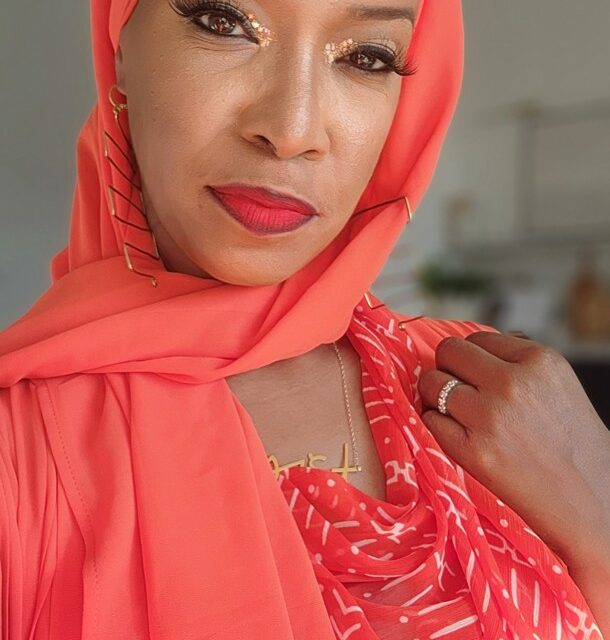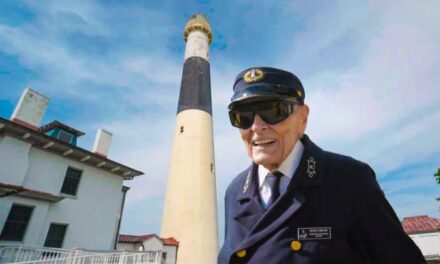Zakiyah Ansari
Interim Co-Executive Director, Alliance for Quality Education

/
Submitted
There were times during the coronavirus pandemic when, organizing alongside New Yorkers half her age, Zakiyah Ansari wondered if she had outstayed her welcome in New York’s activist community. “I thought, ’Maybe you’ve been doing this too long, you’re not radical enough,’” she says. But her younger colleagues told her the opposite: “There’s a level of respect for what I share. It’s a reminder that our experiences as Gen Xers can be really powerful.”
That power was fully in evidence recently, as Ansari’s advocacy efforts led to success in the court battle to change New York state’s public school funding formula. For 15 years, she directed advocacy and New York City efforts for the Alliance for Quality Education. As of this month, she is co-interim executive director of the nonprofit.
A mother of eight, Ansari fell into organizing after she quit her bank job to be more involved with her children’s Brooklyn schools. “My eyes were opened,” she says, watching budget cuts truncate educational offerings. “It’s not only about my child – it’s about all kids.”
Ansari volunteered with what is now the New York City Coalition for Educational Justice, then joined the AQE, taking pride in galvanizing her fellow parents. “I’m a Black Muslim woman. I know how deeply the inequities exist, how some may perceive me,” she says. “But when I see other parents garner their power and understand the value of their voice – on that, there is no dollar sign.”
– Hilary Danailova
Jon Baldwin
Executive Vice President of Government Solutions, Verra Mobility
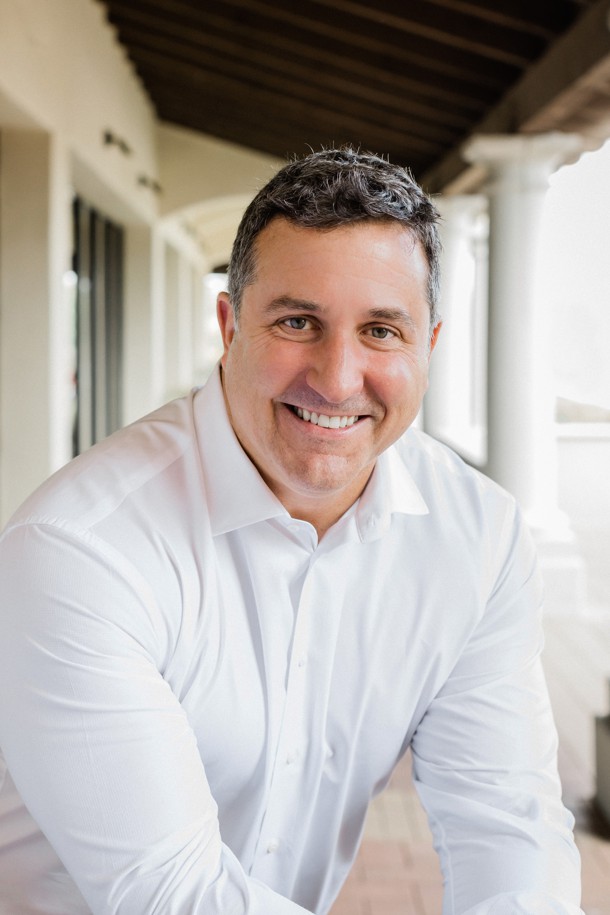
/
Verra Mobility
When Jon Baldwin looks at a standard technology – cell phone buttons, for instance – his engineer brain immediately starts imagining a better alternative, like the sensors he helped develop at Texas Instruments.
“You could have a waterproof phone case, and you wouldn’t have to cut holes in the phone,” he says. “I have a lot of fun disrupting existing markets with new technology, providing an order of magnitude improvement in the way things work.”
Baldwin has applied that innovative thinking to wireless communications, consumer electronics and, most recently, to automated safety enforcement at the mobility technology company Verra Mobility. As chief of government solutions, he partners with government clients to design and implement road safety technologies like red-light and speed cameras and cameras on school buses.
Baldwin always knew he would be an engineer. After earning degrees in electrical engineering, however, “I figured I could solve more problems for more people by taking on larger roles in companies,” he says. He earned a master’s degree in business administration and has held leadership roles at National Semiconductor and Raytheon Technologies.
While some Gen Xers are wary of the incursions of the digital age, Baldwin retains a gee-whiz appreciation for the efficiency of the internet. “Before, we had to get a pen and paper. Now we can get to a solution really quickly, and spend more energy focusing on the unsolved problems,” he says. “I’ve always had a kind of optimism – that any problem people think is impossible, technology might make it possible tomorrow.”
– H.D.
J.R. Cehonski
Regional Director, Queens, LGBT Network

/
Irak Cehonski
Always an artist, J.R. Cehonski is as likely to be making a poster for LGBT Network as he is to be sketching in pastel.
Cehonski’s best-known creations, however, are the social programs he has developed for vulnerable youth. Most recently, he launched Queens programming as regional director for the LGBT Network, a 30-year-old Long Island-based organization offering services, programming and advocacy for queer-identifying young people.
Put another way, Cehonski is facilitating the support he wished he’d had while growing up in the 1990s in upstate New York. “I had to pave my own way when it came to LGBT stuff,” says Cehonski, who calls Queens his adopted home. Coming out in high school, as he did, “was not typical, as it is now.”
Cehonski brought that sensitivity to the adult peer-support program he created at the New York City Department of Health and Mental Hygiene. “Clinical care can be infantilizing,” says Cehonski, who studied social work at Fordham University. “Peer work is having the voice support of someone who’s been through similar circumstances.”
That perspective informs his current work at LGBT Network, where Cehonski has launched programming in 200 schools citywide and created groups for transgender, Latino and other marginalized communities. He is especially proud of expanding the organization’s annual high school empowerment retreat, bringing alumni back as leadership coaches.
“Seeing young people I’ve worked with, who are now successful adults,” he says, “you see how having that support and connection really does make a difference in their lives.”
– H.D.
Samantha Cally Conlan
Senior Vice President, Development and Communications, HELP USA
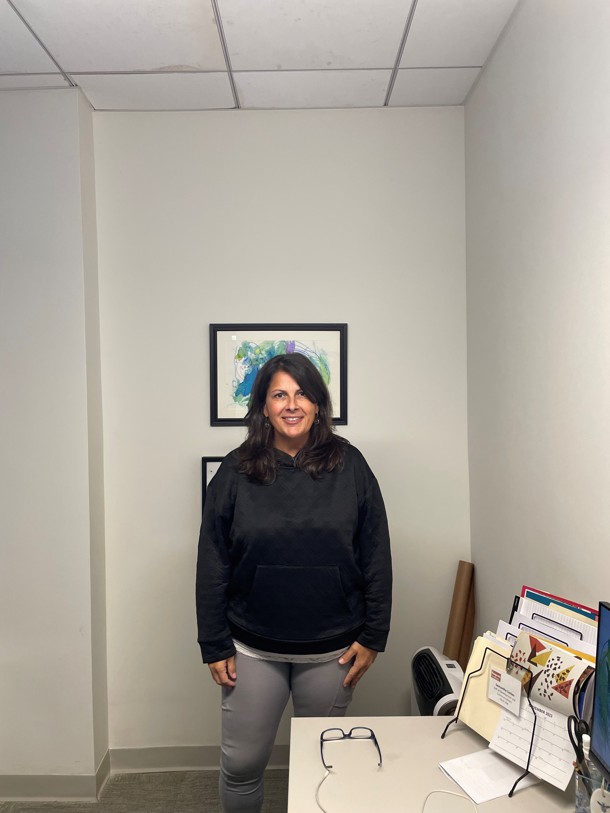
/
Hopeton Dixon
Over the course of her career, Samantha Cally Conlan had courted major donors for such causes as the Wildlife Conservation Society, the New York Botanical Garden and the Museum of Arts and Design.
But the human suffering she saw all around her during the COVID-19 pandemic changed Conlan’s priorities. “I realize that while saving animals and plants and supporting artists are very worthwhile,” says the ace fundraiser, “for my next position, I really wanted to help people.”
So last year, Conlan took over development and communications at HELP USA, a national provider of homeless services and low-income housing. She was recruited to bolster the organization’s programming, which serves 30,000 people across 60 sites in eight states and has a $150 million operating budget.
The Long Island native was always drawn to bigger-picture work. She studied international affairs at Lafayette College and considered law school before becoming the Wildlife Conservation Society’s inaugural director of corporate partnerships. At the New York Botanical Garden, Conlan gave its annual fundraiser a sustainability makeover, bringing in corporate influencers around the theme “Before the Green is Gone.”
Conlan drew on those experiences recently to launch HELP USA’s first annual symposium on homelessness solutions. Having raised over $50 million in her career, she could theoretically afford to relax a little, but the urgency of her mission keeps her going.
“The people I work with right now are saving lives,” Conlan says. “They’re the reason I get out and do my job.”
– H.D.
Mariel Cruceta
Assistant Vice President of Supportive Housing Services, Volunteers of America-Greater New York
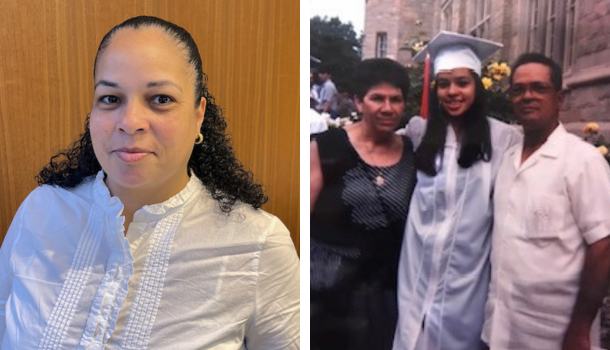
/
Rochelle Heinrichs; Submitted
In the struggling South Bronx community where Mariel Cruceta grew up, “my generation was the first to flip the narrative,” she says.
Cruceta’s parents came to New York from Puerto Rico and the Dominican Republic as teenagers. They had both dropped out of school to support their families. Cruceta became the first in her family to go to college, and her own children now “have a very different experience from how I grew up,” with private school and dance classes.
Along the way, Cruceta has helped thousands of other struggling New York families flip their own narratives. She coordinates shelter for the vulnerable across the metropolitan area as assistant vice president of supporting housing services for Volunteers of America-Greater New York, the organization’s largest regional affiliate.
Cruceta recently led VOA’s participation in the new Street to Housing program, which fast-tracks homeless New Yorkers into permanent lodging. Partnering with several New York City agencies, Cruceta’s team helps clients bypass the shelter system by establishing housing first, then “working backwards – helping establish an income, completing housing applications,” she says.
Cruceta stumbled into a social services career as a student at Hunter College, where a VOA internship fit into a schedule already crammed with multiple jobs. True to its mission, the nonprofit elevated Cruceta – supporting her through two master’s degrees – as she elevated others, both inside and outside the organization.
“Life has its ups and downs,” Cruceta says. “For people having a rough time, giving them a chance is rewarding.”
– H.D.
Antonio Delgado
Lieutenant Governor
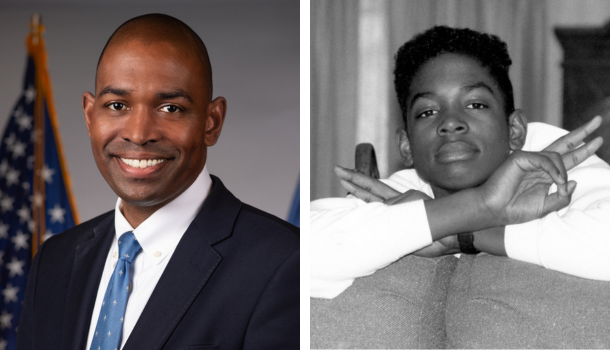
/
NYS Executive Chamber; Submitted
New York’s lieutenant governor is a Rhodes scholar, a Renaissance man – and a romantic.
Heeding his generation’s call to follow one’s passion, Lt. Gov. Antonio Delgado moved to Los Angeles to pursue music after graduating from Harvard Law School. “Hip-hop music is a space where you can speak truth to power, and leverage culture to inspire people,” says Delgado, who grew up singing in his Schenectady church choir.
After releasing an album, he returned to New York “for love,” marrying his Harvard sweetheart and launching a law career. In 2018, defying the naysayers and a Republican voter advantage, Delgado became the first person of color to win an upstate congressional seat – “and to do that with a hip-hop album,” he says, laughing. “It gives me hope that there’s always an ability to connect across difference.”
Delgado brought that spirit to Washington, D.C., where 18 of his bills were signed into law, including major legislation bolstering family-owned farms. He also authored a pandemic formula allocating federal relief funds. His can-do energy caught the attention of Gov. Kathy Hochul, who selected him as her second-in-command last year.
Amid rising social tensions, Delgado is proud to chair the state’s newly formed Hate and Bias Prevention Unit. The social-justice idealism that animated his early music still motivates him, now paired with a sense of generational responsibility. “We’re the last generation with a foot in the world before the internet,” he says. “It’s incumbent on us to help us collectively transition, grounded in a real set of values.”
– H.D.
D-Nice
Founder, Club Quarantine
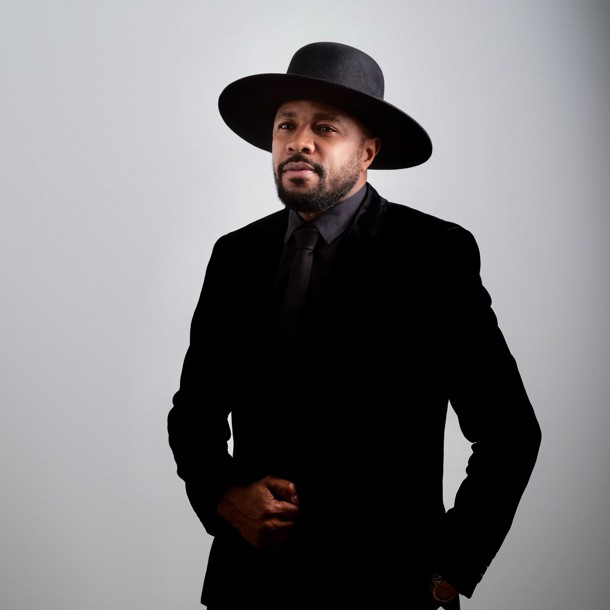
/
Derrick Jones, BrandNice Inc.
DJ and hip-hop star D-Nice found himself quarantining alone at the start of the COVID-19 pandemic in 2020, and decided to find a way to stay connected to others through music. Thus, Club Quarantine was born on Instagram.
Soon he was hosting a party for 10,000, with the likes of President Joe Biden, U.S. Sen. Bernie Sanders, former first lady Michelle Obama, Rihanna and Oprah Winfrey dropping by.
“It is a great feeling that something I did became something that mattered at such a dark time,” D-Nice says. “It brought people sanity during a crazy time.”
D-Nice finds hip-hop and helping communities to be two defining traits of Generation X. He says the “MTV generation” has grown up viewing a wide array of music, including hip-hop. He says that before the 1988 debut of “Yo! MTV Raps,” anyone who wanted to see hip-hop had to watch every video and style of music until the next hip-hop video came on. The show boosted hip-hop’s exposure and popularity.
D-Nice cited a number of historical events – 9/11, the wars in Iraq and Afghanistan and the societal issues the generation saw in the 1980s, including the impact of the crack cocaine epidemic – as reasons why Gen X wants to serve their communities.
“We’ve seen so much,” he says. “We’re not far removed from the Civil Rights Movement. We’ve seen true devastation in our communities. All we wanted to do is give back to people.”
– John Celock
Timothy Foley
CEO, The Building & Realty Institute of Westchester & the Mid-Hudson Region
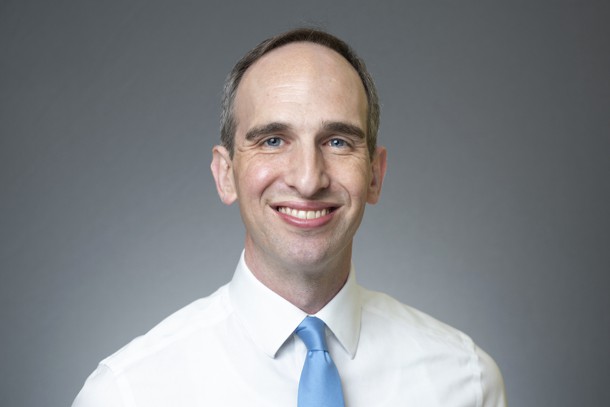
/
Andi Schreiber Photography
Tim Foley remembers being the first in his family to have an email address, back in the 1990s. “Now we carry the accumulation of human knowledge in our pockets,” says Foley, a longtime political strategist. Having all that information just a tap away “makes you a much more effective advocate.”
As head of the Building & Realty Institute, Foley loves being able to call up property records instantly or blast out development alerts for his membership. But he recently went old school, using Gen X pop culture references to make his point in a social media campaign promoting New York’s accessory dwelling bill. “For example, Fonzie on ‘Happy Days’ lived in a garage apartment,” Foley says. “Magnum PI lived in his friend’s guest house!”
Foley himself was almost a thespian. But after moving to New York to pursue theater after college, the Massachusetts native found himself drawn instead to community activism, working on campaigns both locally and for then-U.S. Sen. Barack Obama.
Health care was the motivating issue for Foley, who traces his political involvement to his sister’s struggles with childhood cancer. As the political director for SEIU Healthcare, Foley helped engage physicians in the fights for health care reform and paid sick and family leave.
“Both health care and housing are fundamental quality-of-life and cost-of-living issues, and major stressors for families,” he says. “They’re easy to demonize. But what inspires me is how small actions can make a huge difference.”
– H.D.
Beatriz Fritschler
Deputy Commissioner, Strategic Partnerships, New York City Department of Social Services
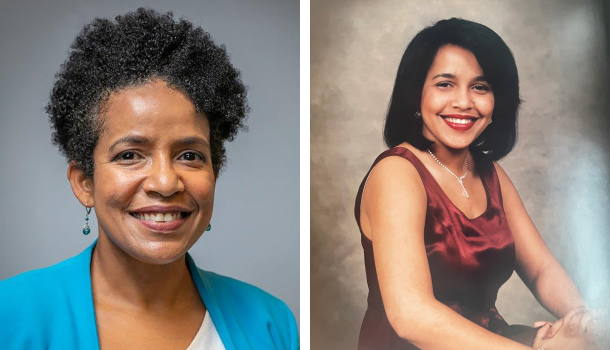
/
Submitted
At lunchtime, Beatriz Fritschler is more likely to be strolling with a colleague than dining at a table. “I coined the term netwalking,” says the health-conscious deputy commissioner of strategic partnerships at the New York City Department of Social Services.
Fritschler had spent decades in a career devoted to the care of others when a burst brain aneurysm forced her to take care of herself five years ago. After beating the odds through two surgeries, Fritschler now brings a renewed sense of purpose as she connects the city agency with its nonprofit and philanthropic partners. She collaborates with academic institutions on social policy, recruits donors for clothing and meals, and works with sponsors for cultural events “to expose our families in shelters to a better life.”
Fritschler’s attraction to service was cemented by her experience emigrating at 19 from the Dominican Republic. Troubled by pervasive sexual harassment at her factory job, she realized that unlike her undocumented peers, “I had options,” Fritschler recalls.
She took advantage of them – learning English and eventually earning a master’s degree in public administration from Columbia University. Determined to support women facing violence and discrimination, Fritschler raised millions for the Dominican Women’s Development Center before spending a decade at the city Human Resources Administration.
Nowadays, she is also an ambassador with the Aneurysm and AVM Foundation – and with a new lease on life, Fritschler is trying to master the choreography to Janet Jackson’s “Rhythm Nation.” “Our generation had the best music,” she says. “But I maybe need to practice a little more.”
– H.D.
Mathylde Frontus
Interim Executive Director, Coney Island Neighborhood Revitalization Corp.

/
New York State Assembly; Submitted
Tackling issues ranging from gun violence to housing insecurity, Mathylde Frontus had launched multiple Brooklyn nonprofits by the time she hit 40. So in 2018, when local leaders were seeking a candidate to fill the troubled Assembly District 46 seat, Frontus was an obvious candidate.
“I thought, ‘Why not?’ I’m already serving this community,” recalls the lifelong Coney Islander. “And I’m always thinking about what I can do to move the needle on intergenerational poverty.” During two terms in office, Frontus created an economic mobility program aimed at supporting her neighbors as they launch small businesses, purchase first homes and train for careers.
To continue that work, Frontus this year co-founded the nonprofit Coney Island Neighborhood Revitalization Corp., where she serves as interim executive director. It’s her latest effort to confront the social problems she first observed during her Brooklyn childhood. “I realized things didn’t have to be that way,” says Frontus, the daughter of Haitian immigrants. “I always wanted to be a vehicle for change.”
To that end, she studied social work at New York University. She later earned a doctorate from Columbia University, and now teaches at both schools. In her 20s, Frontus founded Urban Neighborhood Services, a multiservice nonprofit she ran for nearly a decade. Her Coney Island Anti-Violence Collaboration is celebrating its 10th year, and she recently founded Seaside Independent Democrats to bolster Brooklyn’s leadership pipeline.
“I take pride in the neighborhood,” Frontus says. “I’ve always pitched in. After all, I live here.”
– H.D.
Jessica Funes
Assistant Director, CUNY Office of Veterans Affairs
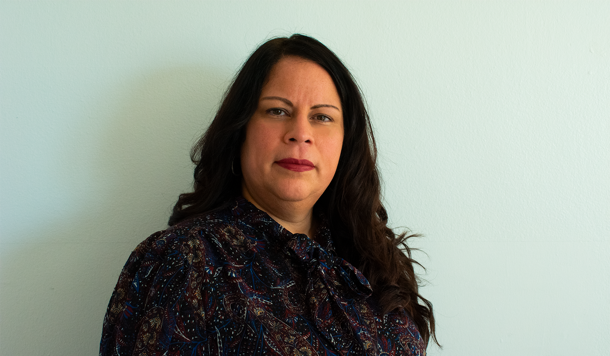
/
Gabriel P
For Jessica Funes, military service was both a blessing and a curse. She relished the sense of mission and solidarity: “If someone cried, you cried,” she says. “When you make it through, you feel like a conqueror.”
But after more than a dozen years in the U.S. Army, Funes suffered traumatic brain injury, PTSD and hearing loss. As one of just three women in her Iraq deployment division, she also felt the scorn of 10,000 male colleagues who saw her “not as equal, but as a burden.”
As a veteran, however, Funes has found her niche. She now mentors hundreds of fellow service members through the CUNY Office of Veterans Affairs, providing the kind of support she yearned for but never found – and creating community through campus events and a volunteer program.
Funes grew up in Queens, chafing against her Ecuadorian family’s traditional expectations. “So when the recruiter came to my door and asked, do you want to make a difference? I said yes,” Funes recalls. Then a single mom in her 20s, she was assigned to a pilot program that trained women together with men.
Back home after discharge, Funes earned a master’s degree in human rights from John Jay College of Criminal Justice, where she was elected to the Salute Veterans National Honor Society. As women have become more prominent in the military, Funes’ particular passion is mentoring CUNY’s 500 female veterans: “I want to be visible and available to them,” she says. “I’m saying, ‘Hey, veterans, you have a voice.’”
– H.D.
Anat Gerstein
President, Anat

/
Jean-Pierre Uys Photography
Maybe because she’s the descendant of Holocaust survivors – or maybe because, as the daughter of Soviet Israeli immigrants who settled in America, she grew up between three worlds – Anat Gerstein was always drawn to social causes.
“I carry that with me,” the Israel-born Gerstein says of her complex heritage. From an early age, she recalls “seeing how people were treated differently through no fault of their own, circumstances they were born into – and standing up for those people.”
Today, Gerstein stands up for a variety of causes through her eponymous communications firm, which works exclusively with nonprofits. Among her roughly 50 clients are many of New York City’s prominent social and human services organizations, museums, business districts and philanthropic foundations.
“We have to both believe in their missions, and know we can support them in achieving their organizational goals,” Gerstein says. These include helping the city’s medical schools implement diversity initiatives, launching Girl Scouts Troop 6000 for girls in New York’s shelter system and expanding homeless and behavioral health services at a moment of rising need.
Gerstein, who holds a master’s degree in public administration, learned policy as the longtime chief of staff to then-New York City Public Advocate Betsy Gotbaum. “She is the most generous New Yorker,” says Gerstein of the woman she considers her mentor – and who, having introduced Gerstein to the nonprofit world, remains a client.
After four decades in New York, Gerstein’s motivation hasn’t changed: “Supporting the organizations that are doing the hardest work in the city.”
– H.D.
David Greenfield
CEO and Executive Director, Met Council
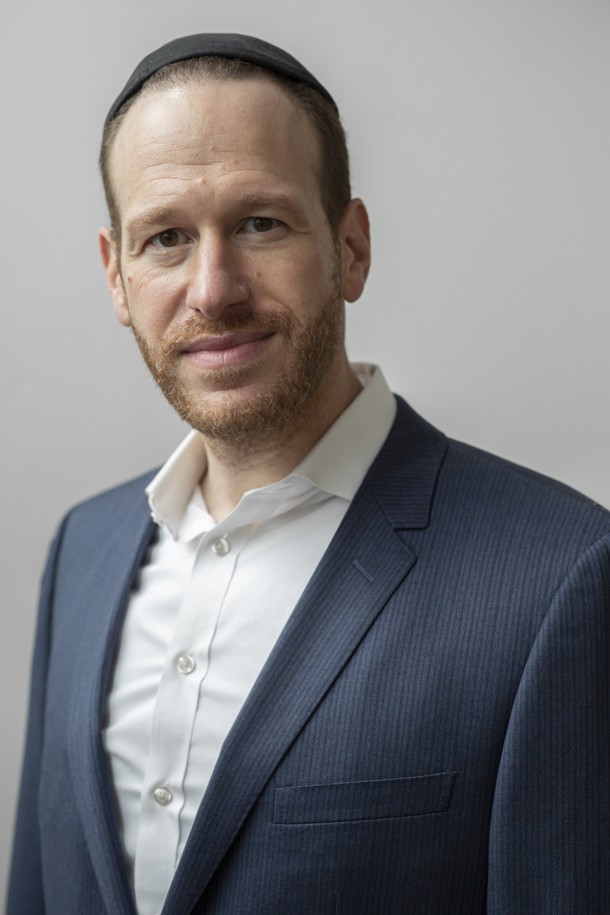
/
Met Council
As the leader of America’s largest Jewish-sponsored anti-poverty charity, David Greenfield makes the broad social impact he has dreamed of since childhood.
Since taking the helm in 2018, Greenfield has grown the Met Council’s fundraising by 2,000%; doubled the budget, staff and clientele to 325,000 New Yorkers annually; and launched innovative programs like a digital food pantry (“think Fresh Direct, but a food pantry“).
“In some respects, you can get more done as a nonprofit CEO than as a legislator,” says Greenfield, who has been both. “In government today, it’s difficult to find consensus.”
Yet Greenfield credits his two terms in the New York City Council with honing his policy and fundraising savvy. In office, he raised millions for park renovations throughout his Brooklyn district, championed affordable housing and authored the Vision Zero legislation aimed at reducing road fatalities.
Greenfield’s public-service impulse comes from a defining childhood incident: He was assaulted by an antisemitic mob en route to a yeshiva, and police dismissed his concerns. After studying political science, Greenfield was a corporate lawyer on 9/11 – an event that “recalibrated my thinking,” he says. “Life is short – let’s put our talents to better use for the community.”
As he expands Met Council’s services to meet rising need across New York, Greenfield is still enmeshed in politics: He co-chaired Mayor Eric Adams’ transition, sits on the mayor’s advisory committee and works closely with Gov. Kathy Hochul. “I feel it’s a continuation of the work,” he says, “just in a different way.”
– H.D.
Suzanne Grossman
Deputy Director of Career Services and Alumni Relations, Baruch College’s Marxe School of Public and International Affairs
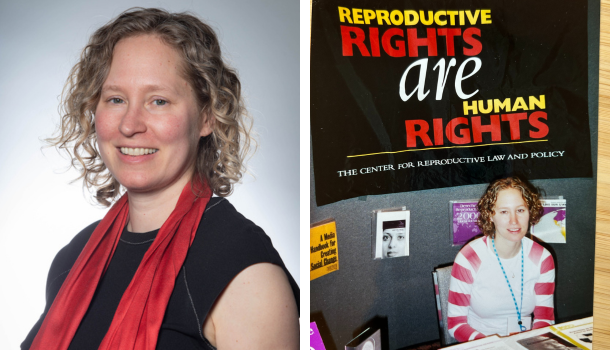
/
Becky Yee; Submitted
Suzanne Grossman could have really used someone like her older self when, as a new graduate from Tufts University, she struggled to land a job. “I was just terrible at interviewing,” she recalls. “I had jobs that didn’t suit my skills. I was bored and frustrated. Coming through that and finding meaningful work made me want to help others find it, too.”
That’s just what Grossman does for aspiring policymakers at the Marxe School of Public and International Affairs at Baruch College in Manhattan. As deputy director of career services and alumni relations, Grossman connects the City University of New York school’s mostly first-generation students with an 8,000-strong alumni network in New York, Albany and Washington, D.C. Under her tutelage, a rising number of Marxe students each year lands career-launching awards like the New York State Excelsior and the Port Authority Leader fellowships.
The New Jersey native started her own career in nonprofits focusing on girls and women before transitioning into career development, with stints at Brooklyn College and the College of Staten Island. Marxe, where she has coached young professionals for a decade, “really speaks to my values,” she says, “serving people from diverse socioeconomic backgrounds who want to make a difference at all levels.”
In her spare time, Grossman is a passionate Irish fiddler. After all, even when the perfect job is landed, “no one career satisfies all the parts of ourselves,” she says. “We have to find ways to engage that creative side.”
– H.D.
Corinne Hammons
President and CEO, Little Flower Children and Family Services of New York
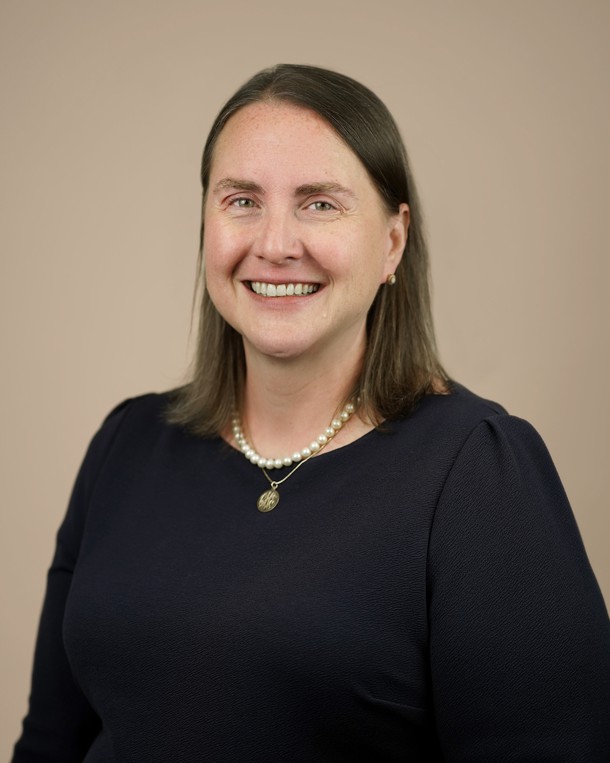
/
Gregory Shemitz
Twenty-five years ago, after starting out in the corporate world, Corinne Hammons realized her heart lay in nonprofit work.
“I have a really keen sense of the importance of social justice,” says Hammons, who now leads Little Flower Children and Family Services of New York.
That sensibility was shaped by growing up in Baltimore during the 1980s crack epidemic. “I saw a lot of what I felt were really unfair things – poverty, racism,” Hammons says. “I had a sense that everyone deserves better.”
At Little Flower, Hammons oversees a $60 million budget as she addresses those inequities one client at a time. The 95-year-old Suffolk County-based organization serves 2,000 vulnerable youths and adults annually, offering wellness, residential treatment as well as foster and adoption services.
Hammons honed what became her trauma-informed approach in her first nonprofit role, at Victim Services (now Safe Horizon). Under her guidance, Little Flower was recently designated as a sanctuary certified organization that incorporates trauma-informed care. The nonprofit also secured its first national accreditation.
Looking back, Hammons is most proud of managing organizations through the crises that defined her generation: 9/11, Superstorm Sandy and the COVID-19 pandemic, when Little Flower remained open around the clock.
“As a Gen X person, I was so mentored by the baby boomers who are part of the Civil Rights Movement and created all these nonprofits,” Hammons says. A quarter-century in, she takes an active role mentoring the next generation: “We are the ones in leadership positions now.”
– H.D.
Angel Hernandez
Bronx Borough Historian
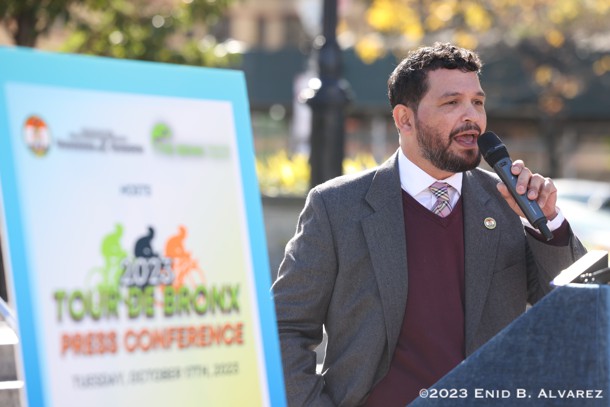
/
Enid B. Alvarez
Bronx Borough Historian Angel Hernandez has been fascinated by history as long as he can remember. At 45, he now realizes he’s a part of it.
“Our generation witnessed the birth of the world that we’re living in today,” Hernandez says. “As a Latino in the Bronx, I saw it all happening.” His brothers breakdanced in the living room; fast-forward, and hip-hop is being fêted at 50, while ’90s fashions are back in style.
Hernandez grew up listening to his Puerto Rico-born parents’ stories – and gazing at Edgar Allan Poe’s cottage on the Grand Concourse. Thirty years later, Hernandez was organizing audio tours of that cottage as director of programs at the Bronx County History Society, where he launched the Bronx Latino History project.
Now Hernandez’s day job is overseeing government relations at the New York Botanical Garden. During the COVID-19 pandemic, he launched food donation programs using crops from both the Botanical Garden and local community gardens.
He is also president of the Huntington Free Library and Reading Room – another piece of Bronx history that Hernandez hopes will engage his neighbors. “You don’t have to be appointed by the Bronx borough president to be a Bronx historian,” he says.
And you don’t have to live that long to be part of history. “We were born in a generation at the cusp of innovation,” Hernandez says. “We can walk by a pay phone and say, ‘I’ve made calls on that – and I can still make a call from my iWatch.’”
– H.D.
Kashif Hussain
Deputy Public Advocate for Infrastructure and Environmental Justice, New York City Public Advocate’s Office
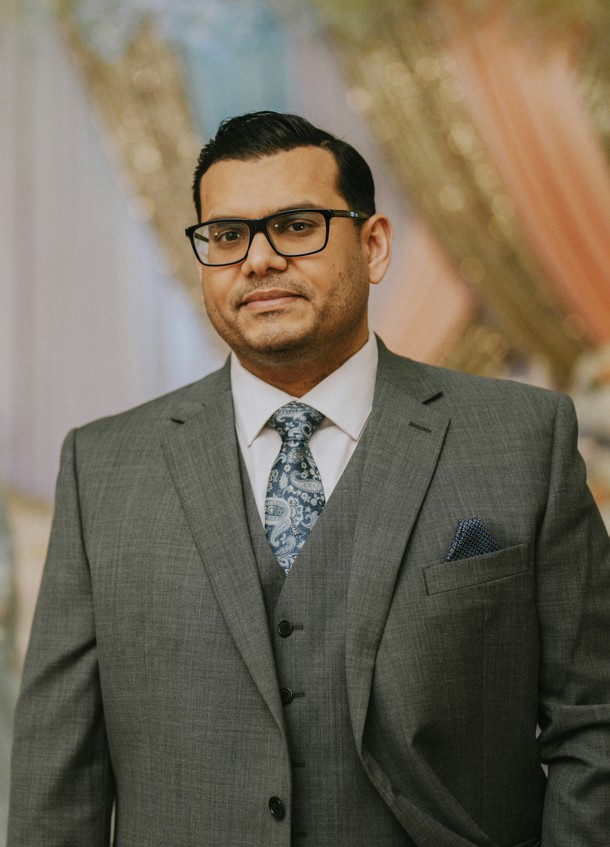
/
Six Stills
Kashif Hussain’s advocacy career was shaped by his immigrant experiences.
As the son of South Asian parents, he grew up watching “a desert turned into paradise” as glittering towers sprouted up in Saudi Arabia, where his father moved the family to work as an architect. The experience made him realize that “infrastructure encompasses not just construction, but also potable water, energy, food – all kinds of systems for people living in concentrated areas.”
As an adult in the U.S., Hussain became a grassroots activist on behalf of his Brooklyn neighbors, whose immigrant communities struggled with tenant struggles and high rates of asthma. “I realized that folks from different backgrounds, living in different neighborhoods, were experiencing the same problems,” he says.
Hussain now brings those perspectives together as New York City’s deputy public advocate for infrastructure and environmental justice – one of four deputies handling social justice issues under Public Advocate Jumaane Williams.
Originally thinking he would build things his father designed, Hussain earned degrees in mechanical engineering from the City University of New York. His shift to advocacy now has him working on green building standards, power generation and crisis responses to such novel environmental challenges as storm flooding and smoky air.
And with the ear of New York City Council, Hussain is finally in an ideal position to solve his neighbors’ problems. “That’s the most satisfying thing,” he says. “We can’t fix it all. But we bring a smile to people’s faces every day.”
– H.D.
Lolita Jackson
Executive Director of Sustainable Cities, Sustainable Development Capital

/
Tommy Leonardi
This fall, Lolita Jackson returned to her alma mater, the University of Pennsylvania, to teach climate strategy. Years ago, her professors were white and male, and she was only one of six female chemical engineering majors. Now women are everywhere.
“It’s like redemption – knowing I really did belong here,” Jackson says.
Jackson has made a career of exceeding expectations. She became an accidental climate expert at the New York City mayor’s office, where she worked for 15 years. After being drafted to work on a post-Superstorm Sandy climate initiative, Jackson ended up serving as Mayor Mike Bloomberg’s chief climate diplomat.
That led to her current role, leading international government relations and organizing events like U.N. Climate Week in the New York office of Sustainable Development Capital, an energy investment firm.
Jackson’s science focus stems from her childhood in a New Jersey housing project. As part of the first cohort bused to an all-white school, she quickly realized to prove her intelligence to skeptical teachers that she should focus on fields where the answer was never in doubt: math and science.
After college, Jackson moonlighted as a jazz singer to pay off her student loans. “I had a day job at Morgan Stanley, but singing allowed me to see the world,” she says. Jackson has sung internationally ever since, bringing the same skills to music as she does to policy: “It’s an ensemble, not a solo. You have to depend on other people – and be able to improvise.”
– H.D.
Christopher Johnson
Senior Executive, Geto & de Milly
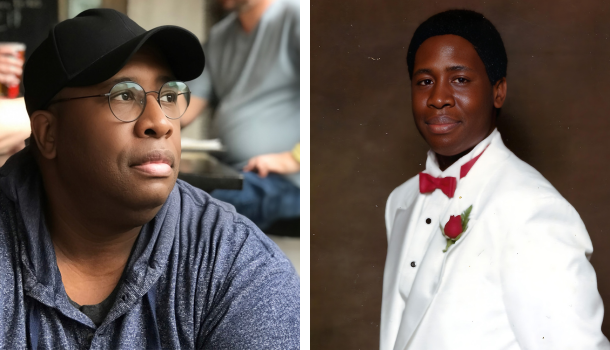
/
Michael Machado; Submitted
Hanging in public relations executive Christopher Johnson’s office is a picture of a bride posing on top of a toolbox. The Home Depot ad appeared in a special advertising section for David’s Bridal in a magazine that no longer exists.
But it had an impact in the media of its day – a metaphor for the arc of Johnson’s very Gen X career, which began in the heyday of print media and flourishes in today’s social media age.
Johnson has now logged nearly two decades with Geto & de Milly, a Manhattan public affairs firm. He made a splash alongside Beyoncé, promoting the opening of Brooklyn’s marquee Barclays Center.
“It was a big moment – bringing this world-class facility to the borough,” says Johnson, who also worked on The New York Times headquarters. “And it was thrilling to be within a stone’s throw of Beyoncé.”
As a first-grader in Manhasset, Johnson was captivated watching President Jimmy Carter’s inauguration on TV. His passion for policy later led to work on campaigns and, in college, as a staffer for then-Assembly Member Thomas DiNapoli.
At Geto & de Milly, Johnson helped develop the digital and social media division and has secured key funding for local nonprofits. “Walking around the city, seeing the magnificent buildings at Columbus Circle or the Barclays Center and knowing I had a hand in that – it’s a sense of pride,” Johnson says.
– H.D.
Jennifer Jones Austin
CEO and Executive Director, FPWA

/
Rob White
Nonprofit workers can thank Jennifer Jones Austin, the longtime leader of FPWA, for supporting a living wage standard. Rikers Island prisoners saw the end of solitary confinement policy thanks to the efforts of Jones Austin, who chaired the New York City Board of Correction. And tens of thousands of city families have enjoyed subsidized prekindergarten with full-day care due to Jones Austin’s work as New York City’s first family services coordinator.
The Brooklyn native, who currently chairs the New York City Racial Justice Commission, is a quiet force behind some of New York’s most effective social campaigns. “When you’re a policy organization, you don’t need $100 million to have an impact,” she says. (FPWA’s budget is $8 million.)
As a student at Fordham Law, Jones Austin realized policy work best suited her bigger-picture ambition. “(People) showed up in court, all affected by the same circumstances and policies, but the systems didn’t seem to work in their favor,” she says.
Jones Austin has tackled that system ever since – from what she calls “the poverty-to-prison pipeline” to the injustice of nonprofit workers earning less than their clients. A veteran of the Bloomberg and de Blasio administrations, she also co-hosts the weekly policy hour of “Keepin’ it Real with Al Sharpton” and the Black community radio show “Open Line.”
Nowadays, Jones Austin is “trying to let go a little bit more and create that space for the next generation,” she says. “And do my best to impart whatever I’ve learned.”
– H.D.
Peter Kauffmann
Founder and CEO, Bluejacket Strategies
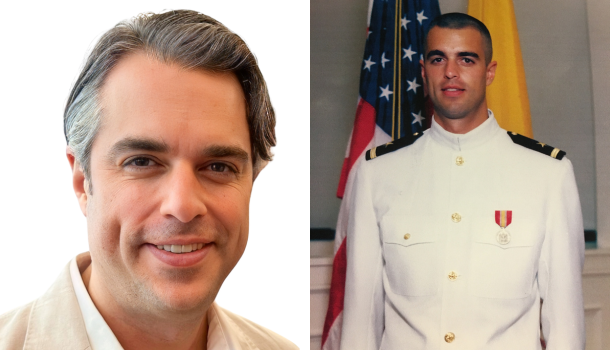
/
Bluejacket Strategies; Submitted
Over a quarter-century in public affairs and public service, political strategist Peter Kauffmann has been at the center of his generation’s defining events.
On Sept. 12, 2001, he toured ground zero alongside then-U.S. Sen. Hillary Rodham Clinton, for whom he served as press secretary. Inspired “to do more” by what he saw, Kauffmann joined the Navy – and found himself on an aircraft carrier to Indonesia providing relief after a devastating 2004 tsunami.
And when the COVID-19 pandemic shut down New York, then-New York City Mayor Bill de Blasio, an old friend, recruited Kauffmann to manage day-to-day crisis operations at City Hall.
By then, Kauffmann had already founded Bluejacket Strategies, his Manhattan-based political consultancy. He had advised campaigns for Andrew Cuomo and Kathy Hochul, and he directed communications for David Paterson. Years after he had worked on the successful effort to legalize same-sex marriage in New York, the Queens native helped pass legislation legalizing surrogacy – twin victories he considers career highlights.
And he had felt his “head explode” with outrage while doing opposition research on Donald Trump. “I came of age in politics when Republicans loved this country – when Reagan defeated the Soviet Union,” Kauffmann says. “And here we were with a draft dodger siding with Russia.”
It was a reminder of how much had changed since he entered politics as a White House intern in 1997. “(But) after 25 years, I’m still an idealist,” Kauffmann says. “I love being able to have a tangible impact on the world around me.”
– H.D.
Nabaraj KC
President, Dil Kumari KC Memorial Foundation
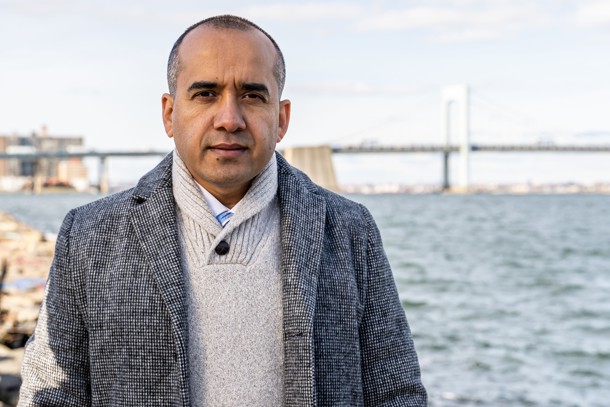
/
Ramila KC
Nabaraj KC never set out to be a “real” politician, as he calls it. “I was trying to help the community,” he says. “But if you are in power, you can do a lot more.”
The Nepali-born New Yorker has proven that point over two decades as a community activist. As a member of New York City Mayor Eric Adams’ Southeast Asian Advisory Committee, KC is a City Hall liaison for his fellow Asian Americans. He served on the Queens Community Board 3 and currently heads the College Point Civic and Taxpayers Association.
A natural leader, KC embodies his community’s immigrant hustle. He ran a local restaurant, several grocery stores and a cell phone boutique before embarking on a real estate career (he now serves on the board of the New York State Association of Realtors). During the coronavirus pandemic, KC coordinated and distributed $3 million in food and supplies to vulnerable neighbors – prompting Adams, then the Brooklyn borough president, to recognize him as a “Brooklyn COVID Hero” in 2021.
The following year, after an unsuccessful run for the New York City Council, KC served on Adams’ mayoral transition team. He has orchestrated numerous New York festivals spotlighting South Asian culture. More recently, KC launched a foundation to raise money for the city’s fast-growing Nepali community.
“I never thought that someday this poor guy all the way from afar would be able to even dream about running for City Council,” KC says. “But if I don’t take a lead, who’s going to?”
– H.D.
Amy Kellogg
Partner, Harter Secrest & Emery LLP
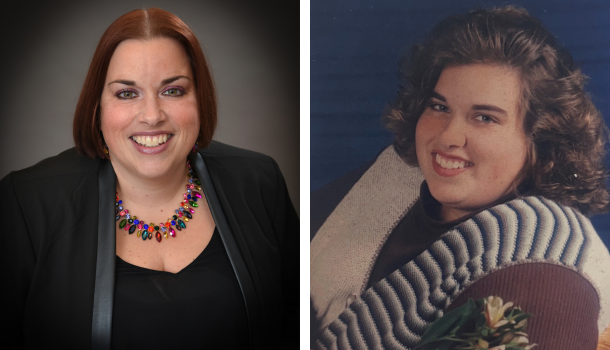
/
Super Source Media LLC; Submitted
As an attorney, Amy Kellogg has had one employer – Harter Secrest & Emery, the Albany business law firm where she is a partner – and one school, Albany Law School of Union University, where she earned her degree and now teaches lobbying law. “I know my niche,” Kellogg says with a laugh.
Kellogg has thrived over two decades at the intersection of law and legislation. She’s the partner in charge of the Albany office and leads her firm’s government affairs group, a practice that’s ideal, she says, “if politics is also your hobby,” which for Kellogg it is. “It can be a challenging time to love politics. But I actually do love it.”
That passion has fueled Kellogg’s efforts passing hundreds of bills over the past two decades – including, notably, legislation extending a chemotherapy coverage benefit on behalf of client GSK, formerly GlaxoSmithKline. She has represented numerous licensed professionals seeking legislative tweaks around their practice regulations, and has worked on binding arbitration with unions and transit authorities.
Over 20 years in practice, Kellogg has seen two big changes. One is the rise of social media: “It’s good at engaging people, but it doesn’t capture the detail you need when you’re talking about policy,” she says.
The other is a more diverse new generation of policy lawyers, whom Kellogg is committed to mentoring. “I’ve been the first in many instances,” she says. “I don’t want to be the first anymore – and I don’t want others to be the first, either.”
– H.D.
Cathy Kim
Chief Program Officer, Hot Bread Kitchen
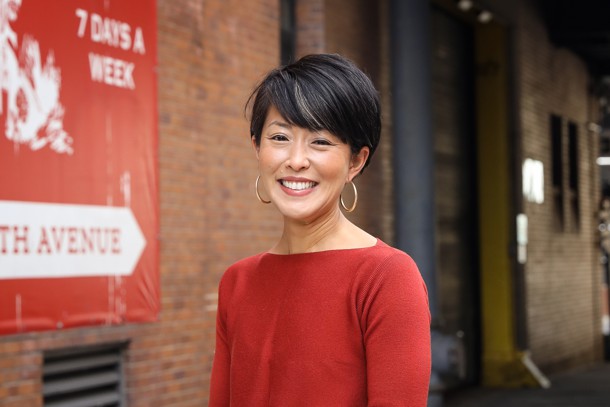
/
Margo Sivin, Hot Bread Kitchen
Cathy Kim’s father, a South Korean immigrant, taught her that “nothing but luck separates you from the person living on the streets,” she says. As an adult, however, Kim had an epiphany: “It’s not just luck. It’s also the resources and the network you have around you.”
Ever since, this Angeleno-turned-New Yorker has sought to ensure that the less fortunate have access to those resources. She is currently chief program officer for Hot Bread Kitchen, a Brooklyn-based nonprofit that helps women – largely immigrants and people of color – train for and secure hospitality jobs and build small businesses. In two years, Kim has doubled the staff to 50 employees and implemented a strategic growth plan that quadrupled annual clients served to more than 400 in 2023.
In prior roles with the New York City Housing Authority and several social services nonprofits, Kim realized “housing is just one part of a much bigger system,” she says. “Without income, you can’t afford housing.” Now working on this issue, Kim manages workforce development programs that contribute some $100 million in regional economic impact.
The resourcefulness Kim learned as an immigrant’s daughter and a Gen Xer, in her view, can help bridge digital as well as cultural divides in her adopted hometown. “Change has defined our generation,” she says. “If you don’t want to be left behind, you have to embrace it – and leverage those things in service of our communities.”
– H.D.
Steve Kramer
President, Get Out The Vote
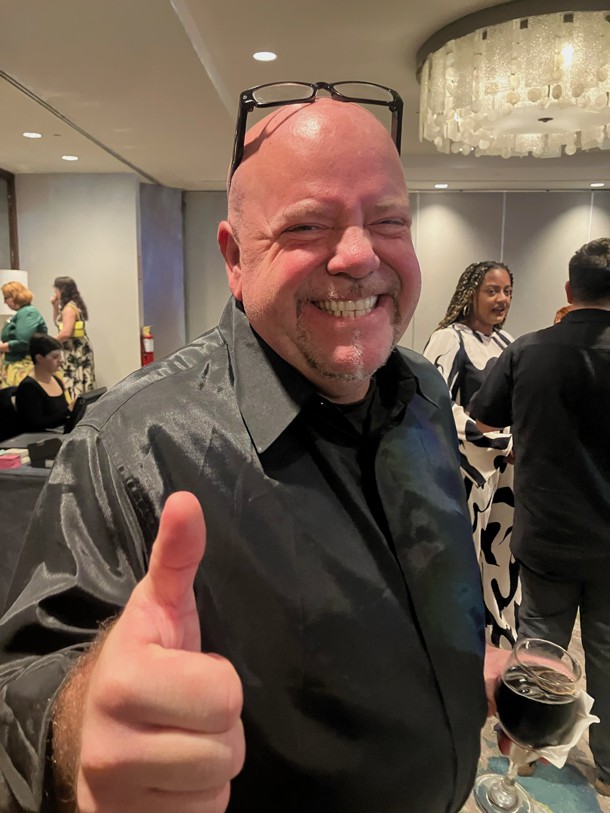
/
Submitted
Whether on the mat or in the political fray, Steve Kramer has never been one to be outwrestled.
At his Washington Heights high school, he was the kid nobody dared beat up “because they knew it wasn’t going to end well for them,” Kramer says. His classmates made a deal: “Don’t get in the way of our drug (sales), and we won’t get in the way of your politics.”
At that point, Kramer was already a decade into his political campaigning career. He started wielding a clipboard at age 6; by 14, he was managing get-out-the-vote efforts on Manhattan’s West Side and in Connecticut, where he grew up. Former Connecticut Gov. William O’Neill wrote his college letter of recommendation.
Now Kramer runs campaigns in 38 states (and occasionally overseas) with Get Out The Vote, his Manhattan-based outfit. He routinely wins races by 1 percentage point or less – and delights in toppling incumbents.
Over the years, he has worked with the likes of Gov. Kathy Hochul and former White House press secretary Jen Psaki. “I’d love to have an alumni dinner, but I wouldn’t be able to afford the bar bill,” says Kramer, an inveterate party-thrower universally known by his last name.
His clients are myriad, often luminary – and include both Democrats and moderate Republicans, like former New York City Mayor Mike Bloomberg.
“My criteria are, can they win? Do they represent that district? And can they afford me?” he says. “It’s a business, in addition to being a passion.”
– H.D.
Sharon Levy
Senior Vice President, Public Affairs, YMCA of Greater New York

/
Melissa Maxwell
One of Sharon Levy’s favorite programs at the YMCA of Greater New York is called Teens Take the City. “It’s a magical experience,” says Levy, who heads public affairs for the 171-year-old organization. “Kids think about what they’d do better, draft legislation and visit the City Council chamber, where they actually debate bills.”
The daughter of Israeli immigrants, Levy was a teen herself when she “caught the bug” for politics at Queens College. As a commuter student from Howard Beach, she was thrilled to intern at the state Senate in Albany. “That was it, there was no turning back,” she says.
Back downstate, Levy worked for a governor, a New York City Council member and a member of Congress. Her grassroots instincts and deep knowledge of policy have yielded tangible benefits for the YMCA, where she handles government affairs on behalf of 24 branches serving 500,000 New Yorkers annually.
During the COVID-19 pandemic, Levy helped coordinate the YMCA’s vaccination clinics, a remote-learning support program and three new food pantries. More recently, in response to increasing demand in the city’s northernmost borough, she championed the opening of two Bronx facilities.
It all sounds like a lot, but Levy thinks her work ethic is typical of her generation. “We’re incredibly hardworking, and we really do believe we can have it all,” she says. “I have four kids, two dogs and a full-time job. And I’m tired. But I wouldn’t trade any of it.”
– H.D.
Vanessa Pino Lockel
Executive Director, Cornell Cooperative Extension of Suffolk

/
Coco Teodoro; Submitted
In early 2020, Vanessa Pino Lockel assumed leadership of the Cornell Cooperative Extension of Suffolk – just as the world shut down and the nonprofit faced dire funding cuts. “Not being able to meet my employees face to face, building visibility when the whole world was at a standstill – it’s been nothing but uphill,” she says.
Three years later, Lockel has grown the $20 million land-grant organization from 100 to 250 permanent employees and expanded programming across 10 Long Island locations, including a 272-acre educational farm. It took a work ethic Lockel attributes to her upbringing as the daughter of a Colombian immigrant mom and to “a generation that has grit,” she says. “We were forced to figure things out for ourselves.”
Case in point: When Lockel couldn’t find a job in theater, her college major, she took a temp job at JPMorgan Chase & Co. That led to finance and policy roles at the state Banking Department, the state comptroller’s office and, most recently, handling government and community affairs for the Long Island Rail Road.
Lockel is also a marathon runner and a nutrition expert, so Cornell’s flagship agriculture programs resonated. Under her leadership, CCES has emphasized sustainability, most recently with a state grant for local green energy research.
Lockel knows that healthy communities, like healthy bodies, are a question of priorities. “I may not be the richest or the most successful,” she says. “But I’m doing all of it. And I’d like to highlight the balance I’ve been able to pull off.”
– H.D.
Brandon Lorenz
Principal and Owner, Lorenz Communications & Public Affairs
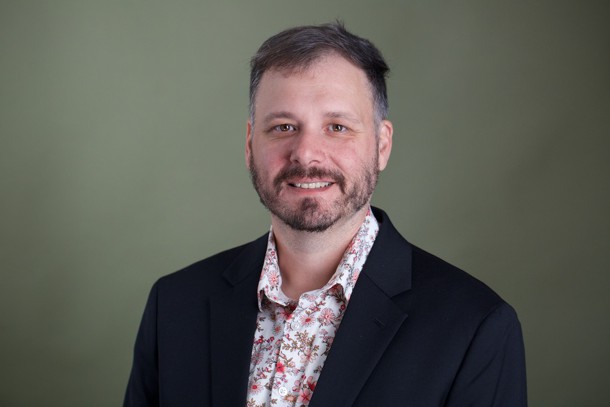
/
NYH
As the COVID-19 pandemic began to subside, Brandon Lorenz decided it was time to launch his own New York City firm. The result – Lorenz Communications & Public Affairs – brings together Lorenz’s decades of experience as a journalist, campaign professional, policy strategist and union advocate.
“I’d done so many things in my career – crisis moments, advocacy campaigns,” Lorenz says. “In a consulting role, I can say, ‘I’ve seen this type of situation before.’”
As a young reporter, Lorenz had noticed how his workplace differed from union newsrooms. “It was very impactful for someone trying to make it in a field where wages and benefits have never been what they should be,” he says.
Years later, the Wisconsin native brought that awareness to his debut New York role – as national communications and public policy director for the Actors’ Equity Association. He negotiated a 2019 profit-sharing arrangement for its 51,000 members and, when the pandemic shut down theaters, negotiated the actors’ unemployment benefits.
Lorenz had previously headed communications for the Human Rights Campaign, garnering congressional support for a comprehensive nondiscrimination bill. And he was already fluent in policy from jobs with the Wisconsin and Nebraska Democratic parties, as well as with numerous Democratic candidates.
Honing those skills before social media’s instantaneous likes and clicks has proven to be an advantage. Lorenz frequently counsels younger colleagues “to pump the brakes,” as he puts it. “My inclination is to give things a little more time – which is definitely generational.”
– H.D.
Kelsey Louie
CEO, The Door and Broome Street Academy
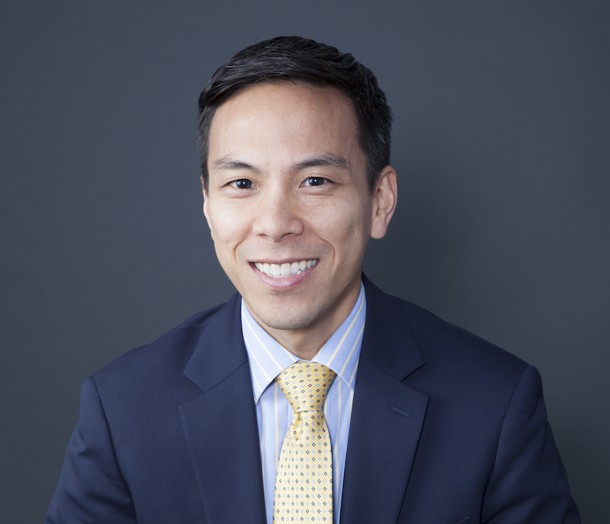
/
Adam Fredericks
Coming of age as a gay man from an Asian immigrant family, “I was part of several communities that needed support,” Kelsey Louie says.
As a social worker and nonprofit leader, Louie has in turn provided that support to vulnerable communities across his native New York City. Louie headed GMHC, formerly Gay Men’s Health Crisis, for nearly a decade, adding supportive housing, a mental health clinic and the Terry Brenneis and David Boger Hub for Long-Term Survivors.
Now Louie is expanding social services at The Door, a $40 million youth organization that serves 10,000 mostly low-income young people of color annually – including at its public charter school, Broome Street Academy.
With a marginalized population that is 25% LGBTQ-identifying, The Door “wasn’t much of a departure” from GMHC, Louie says. His mission remains “to support communities – and include their voices by asking directly what they need.”
As it turns out, youths need many of the same things as gay men: legal and nutrition services, supportive housing and mental health (a dedicated Door clinic is forthcoming).
Louie credits his effectiveness to “managing with my MBA, but leading with my MSW,” he says. After graduating from New York University’s Silver School of Social Work, where he has since taught, Louie decided he would be a more effective leader with organizational know-how – and earned a business degree from Columbia University.
“Today’s generation has turned up the volume on demands for things like equity, transparency and inclusion,” he adds. “That’s forcing us to adapt – to be better.”
– H.D.
Kristin Malek
Global Director of Business Diversity, CDW
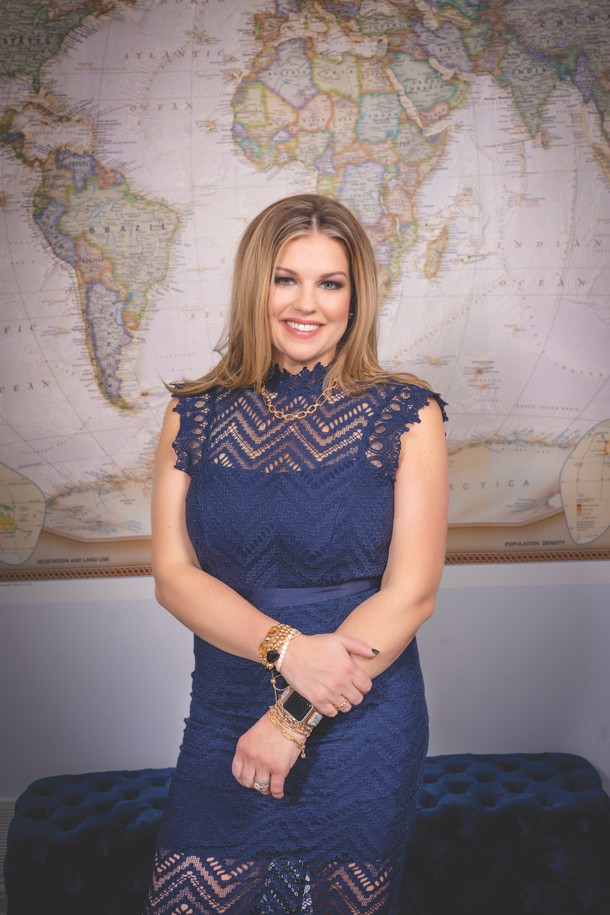
/
Victor Powell, Powell Creative Services
When Kristin Malek was in fifth grade, she saw Melanie Griffith in “Working Girl,” and it changed her life. “I wanted to wear that tweed outfit and heels and take a briefcase to work,” recalls Malek, who came from a family of stay-at-home women.
In her 20s, Malek launched a corporate career in supply chain and procurement, “chasing money and just wanting to get promoted,” she says. But giving birth to a daughter with Down syndrome 14 years ago changed her priorities: “I’m still a for-profit professional, but I needed to find a way to support and advocate for marginalized communities.”
And that’s how Malek became a leader in supply chain diversity. After two decades at Target, in 2017 she became the global director of business diversity at CDW – an IT provider for New York state, New York City and numerous city agencies.
Malek helps clients ensure they meet their diversity investment goals. New York City, for example, has a target of 30% of contract values going to businesses owned by minorities or women. Under Malek’s guidance, in 2019 CDW was inducted into the Billion Dollar Roundtable – placing it among only 34 companies worldwide that have spent $1 billion dollars directly with minority- and women-owned businesses.
“I often think what could have been if all the Fortune 100 were in that roundtable,” Malek says. “I think we have to keep talking about the change we want to see. Whether I’m helping women-owned, veteran-owned or disability-owned businesses, I’m still meeting my commitment to my daughter.”
– H.D.
Jerry McKinstry
Assistant Vice President of Public Affairs, Pace University
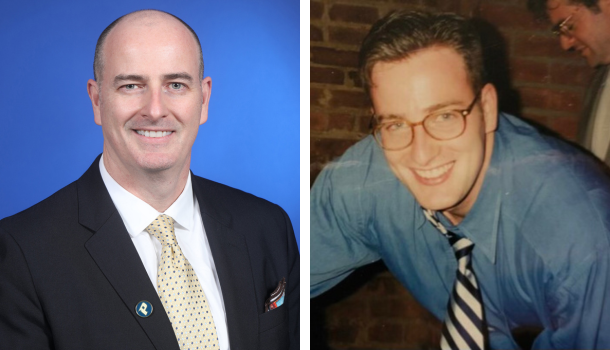
/
Pace University; Submitted
As befits a member of Generation X – a cohort that has adapted to sweeping and continuous change – Jerry McKinstry has had at least four careers, and he’s not done yet.
“I’ve made the decision to reinvent myself often,” says McKinstry, currently assistant vice president of public affairs at Pace University – and a 2023 graduate of its master’s program in digital media. Drawing on his background in journalism and politics, McKinstry has doubled the university’s media mentions in four years, placing faculty in prestigious publications like The New York Times and The Wall Street Journal.
The Yonkers native was entranced by media early: His first job was delivering newspapers. Later, McKinstry worked as a Gannett reporter by day and a journalism professor by night. “Journalism was a fantastic experience; it was my master’s in life,” he says. “I loved the symbiotic relationship of doing the craft and teaching it.”
As newspapers shuttered, however, McKinstry transitioned to politics. At a series of media relations outlets, he handled press for state and national campaigns; he also served as deputy communications director for Westchester County Executive Rob Astorino.
“Now university life brings all my experiences together in a real synchronicity,” McKinstry says. The onetime professor was exhilarated to be back in the classroom at age 48, making documentary films alongside students 25 years his junior. “Gen X – we’re a bridge to generations,” he says. “We can bring different worlds together, with the wisdom to make an impact.”
– H.D.
Graciela Mochkofsky
Dean, Craig Newmark Graduate School of Journalism
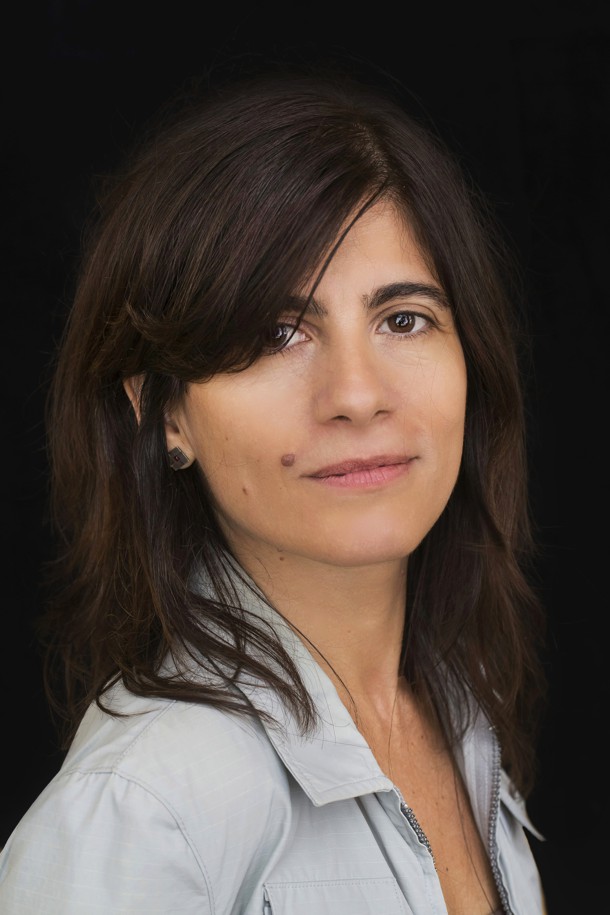
/
Submitted
In the tiny Patagonian village where she grew up, Graciela Mochkofsky started her own magazine at age 8. It was the beginning of a career that, while spanning continents and languages, has remained devoted to community journalism.
Mochkofsky, a veteran political reporter in her homeland, is now dean of the City University of New York’s Craig Newmark Graduate School of Journalism, and the architect of a $40 million initiative partnering city advertising with local media. She came to Newmark in 2016 to launch the nation’s first Spanish-English bilingual journalism program – and has since overseen six cohorts of “pioneros,” as she calls them, who’ve gone on to populate the nation’s newsrooms just as “Spanish speakers (have become) part of the national conversation.”
Mochkofsky brings a perspective shaped by a childhood under Argentina’s brutal dictatorship. “I grew up at a time of profound change and uncertainty, which forced my generation to adapt,” says Mochkofsky, who is also a contributing writer for The New Yorker. “That resilience has served me well – and helps me now, as the dean of a journalism school during a moment of huge transformation.”
At Newmark, Mochkofsky oversaw the national expansion of the Center for Community Media, which supports news outlets covering immigrants and communities of color. She also launched the school’s annual Latino Media Summit. “I was shaped by people who knew that journalism is something that you fight for,” she says. “That democracy is something that you fight for – and it can go away.”
– H.D.
Marc Molinaro
Member of Congress
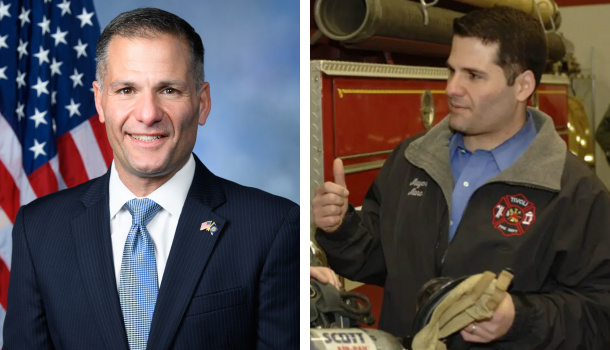
/
U.S. House of Representatives; Dutchess County
Anyone making a Gen X slacker joke never met Marc Molinaro. In 1995, at just 19, he became America’s youngest mayor – a position he held for six terms in upstate Tivoli, population 1,300.
“I fixed potholes and water main breaks, picked up garbage and built parks,” says Molinaro, a Republican elected last year to Congress. While his peers were pledging fraternities, he was steeped in zoning and economic policy: “Being a village mayor, you are the person people turn to, which is both challenging and fulfilling.”
Inspired by a high school program in Washington, D.C., Molinaro actually won his first election at 18, to the Tivoli Board of Trustees. Later, as a Dutchess County legislator, he wrote the Clean Indoor Air Act, which became a model for eliminating indoor smoking statewide.
After a stint as the Assembly’s assistant minority leader, Molinaro spent a dozen years as Dutchess County executive, working on criminal justice reform and building a model for a community-based mental health care. He ran for Congress “because I felt they could use some upstate common sense,” he says. “I felt they could use a village mayor.”
Three decades later, Molinaro draws daily on the lessons he learned back in Tivoli. “At that level, you see your decisions have real impact for real people,” he says.
“My generation has lived through a lot of history really quick, and it seems to be accelerating,” he says. “But I’ve cherished every second of my last 30 years in public service.”
– H.D.
Eon Nichols
Partner, Cuddy & Feder LLP
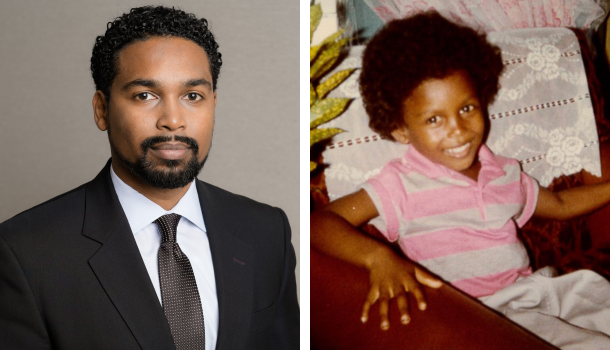
/
Michael Meyer; Submitted
Eon Nichols’ coworkers have noticed that when things are chaotic at the law firm of Cuddy & Feder, Nichols remains calm as a cucumber. That equanimity comes from being a Guyanese American immigrant, with a broader perspective on the travails of life.
“An appreciation for what you have, even when things are bad – that’s shaped my outlook on life and on work,” says Nichols, who is now a partner in the firm’s White Plains office.
When he was 8, his family settled into Queens’ Guyanese community. After college at SUNY Binghamton, Nichols studied law “because I always knew I’d go to grad school, but didn’t want to deal with blood,” he says jokingly.
Nichols’ first job out of Fordham Law School was at Cuddy & Feder, and he figured he would move on after a year or two. But real estate law was just too much fun. Two decades on, he is negotiating deals like a recent nine-figure Florida transaction involving 11 buildings.
But the projects closest to his heart are in his adopted Westchester community. Nichols was thrilled to facilitate a recent $275 million mixed-use development in downtown White Plains. He’s also active with the Business Council of Westchester, African American Men of Westchester and the local Burke Rehabilitation Hospital.
“I enjoy dealing with a lot of different types of clients from all walks of life at this job,” Nichols says. “I always liked the area, the community, the firm. And I just grew with it.”
– H.D.
Jack O’Donnell
Managing Partner, O’Donnell & Associates

/
O’Donnell & Associates; Denise O’Donnell
It was summer 1996, and Jack O’Donnell was waiting for his post-college job to start at a government agency. Meanwhile, he impulsively hitched a ride to the Democratic National Convention – and ended up working on the Clinton-Gore campaign.
He never did take that government job. “Once you’ve been on a campaign, it’s hard to go back,” says O’Donnell, now a managing partner at his government relations and public affairs firm.
In the quarter-century since, O’Donnell has worked on countless campaigns. Most memorably, he worked to elect U.S. Sen. Charles Schumer in 1998 “when he was 50 points behind in the primary,” O’Donnell says. “My mother told me I should get a real job.”
O’Donnell not only helped convince upstaters to elect the Brooklyn candidate, he ultimately went on to work for the senator. Last month, Schumer was back in Buffalo to announce a regional tech hub. “He’s really kept that promise to upstate New York, and I’m happy to have been part of it,” O’Donnell says.
Indeed, while most of his ambitious peers have left Buffalo, O’Donnell is devoted to fortifying his home region. He recently helped secure funding for the Strong National Museum of Play’s $120 million expansion, and for the University at Buffalo’s new engineering building.
But O’Donnell’s most meaningful campaigns have been the ones he ran for his mother, an attorney general candidate, and his father, a state Supreme Court judge. “Getting to do that for your parents, after all they’ve done, was a highlight,” he says.
– H.D.
Diana Ostroff
Chief Operating Officer, Ostroff Associates

/
Elario Photography
In what feels like a metaphor for her generation, Diana Ostroff’s lobbying career has been bookended by technological innovation.
As a new business graduate of Siena College, Ostroff was hired for her first job because she knew Microsoft Windows and, wait for it, MS-DOS – the cutting-edge operating systems of the 1990s.
More recently, as chief operating officer for Ostroff Associates, she has been educating legislators about AI and NFTs. “Lobbying boils down to learning your issues,” says Ostroff, who specializes in helping companies navigate policy. “That, and not burning bridges.”
The daughter of Albany-area entrepreneurs, Ostroff studied business, then went on to a decade lobbying at the Business Council of New York State. As a young woman in a male-dominated field, she told an older colleague, “‘One day I’m going to represent these businesses.’ And now I do,” she says.
Twelve years ago, after a string of leadership roles with regional and national business associations, Ostroff assumed a full-time role at her husband’s 28-year-old firm, whose 150-plus clients span myriad industries. She has particular expertise in energy regulation as well as multiyear economic development projects, such as the Bedford Union Armory and Staten Island’s Empire Outlets.
Even as she mentors up-and-coming lobbyists, Ostroff bemoans the increasing vitriol of contemporary politics. “Our generation wasn’t like that. There was compromise,” she says. “But we as a generation need to think beyond the sound bites. And it’s my job to get clients to the end result.”
– H.D.
Dawn Pinnock
Commissioner, New York City Department of Citywide Administrative Services

/
NYC Department of Citywide Administrative Services
For Dawn Pinnock, running the administrative nerve center of New York City government is more than a job – it’s a calling.
Pinnock characterizes her 26 years in government as part of a mission to serve others. It led her to the nonprofit world and then into government. At the center of this objective has been a desire to focus on people-centered programs and services, whether it’s in job training, reducing juvenile recidivism or human resources.
“The common theme is a call to serve because I feel it is a calling,” Pinnock says of her career. “When you are called to serve and serve people, you are not taking it for that thank you. You will serve people who you do not see or do not meet.”
Pinnock sees her work as uniting Generation X. She says she and her generational peers growing up in New York City saw neighborhoods hit bottom and had an optimistic desire to serve.
Pinnock says being Gen X serves her well in her current role. She says she and her friends call their generation the MacGyvers, after the 1980s television character who could figure his way out of any jam using his own wits and knowledge.
“We were the only generation to know what it was like to not work with technology but are not scared to work with it,” Pinnock says. “You had to rely on yourself. We did not have the modern conveniences we have today.”
– J.C.
Angela Pinsky
Head of Government Affairs and Public Policy, Google New York
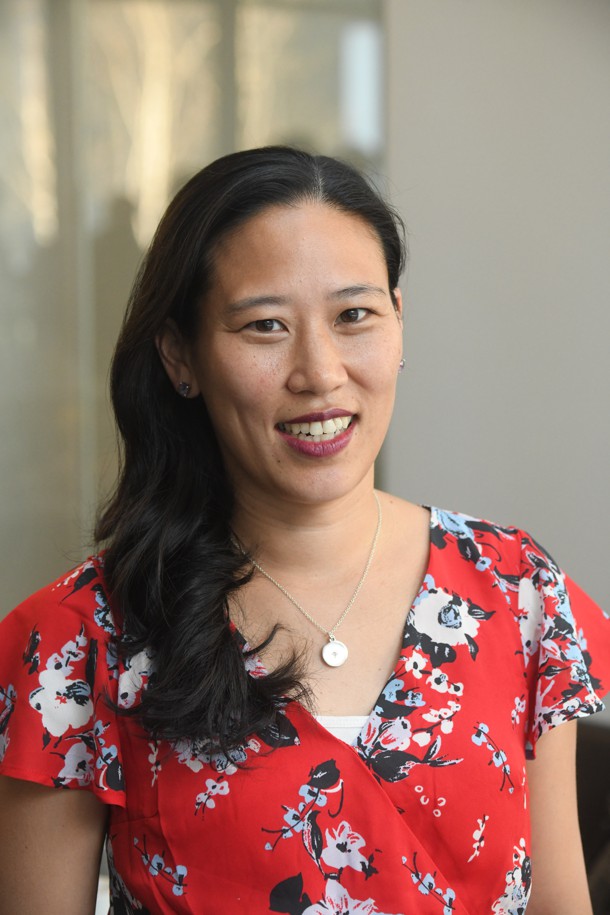
/
Don Pollard
Angela Pinsky was living in New York City when the cataclysm of 9/11 prompted her – like many of her generation – “to reexamine my life,” she says.
Pinsky had grown up in New Jersey assuming she would be a doctor. But after the terrorist attacks, she followed her heart into economic development, taking jobs to fortify her city.
“I built my personal and my professional life around New York and figuring out ways to make it better,” Pinsky says. She met her husband, 92NY CEO Seth Pinsky, when both worked for then-Mayor Mike Bloomberg. And she was a key player in the administration’s strategic growth plan, which positioned New York City as a model for urban sustainability by building on its existing infrastructure.
Now Pinsky directs government affairs and public policy for Google New York, championing the tech industry’s role in broadening opportunity. Under her leadership, the Silicon Valley giant invests in a range of initiatives to nurture New York City’s workforce pipeline to what Pinsky calls “good, middle-class jobs” in evolving technologies.
Pinsky has held a number of advocacy jobs – most recently, leading the Association for a Better New York – but her touchstone remains the lessons she learned under Bloomberg’s legendary development chief, Dan Doctoroff.
One was the transformative effects of planning on city neighborhoods like Greenpoint and Williamsburg, both rezoned as part of a failed Olympic bid. “It showed me that thinking big and having ambitious goals is a great mechanism for progress and change,” Pinsky says.
– H.D.
Clint Plummer
CEO, Rise Light & Power
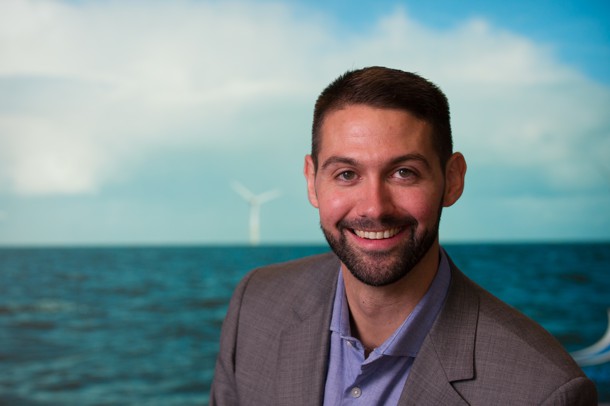
/
Rise Light & Power
As the CEO of Rise Light & Power, Clint Plummer is at the forefront of New York’s transition to renewable energy. But it was actually his childhood on an Ohio farm that first taught Plummer about strategy and investment, lessons he now applies to the redevelopment of New York City’s largest power generation facility.
“You have to make informed decisions, decide where you’re going to invest your capital, then wait for growth,” Plummer says. “And while you’re waiting, you’ve got to manage your risk and your exposure.”
It’s the kind of long-term thinking Plummer brings to Renewable Ravenswood, Rise’s comprehensive overhaul of a vintage fossil fuel-based generator. His clean energy vision was first ignited at MIT. While studying for a master’s degree in engineering, Plummer became convinced that America’s aging energy infrastructure would shortly and inevitably be replaced with renewable sources.
A few years later, he helped launch Deepwater Wind, the company for which he spearheaded two pioneering wind farms – on Long Island’s South Fork and on Block Island. After selling the company to Ørsted U.S. Offshore Wind, he joined that company as head of new projects, championing major installations off the New York and New Jersey shores.
At Rise, Plummer partners with global companies on far-reaching projects. But his inspiration lies closer to home. “I’m raising three children,” he says. “I want New York to be the best place it can be for them to grow up in – and to give them a better world than the one we found.”
– H.D.
Michael Preston
Executive Director, Joan Ganz Cooney Center at Sesame Workshop

/
Sesame Workshop; Submitted
Unlike most of his Gen X peers, Michael Preston grew up with a computer at home, as his father worked at Bell Labs. So he is ideally positioned to understand not only how profoundly technology has evolved since the 1980s, but also how kids relate to it.
Preston, a pioneer of children’s computer science education, puts that knowledge to use as executive director of the Joan Ganz Cooney Center at Sesame Workshop. He heads the Sesame Street organization’s nonprofit research and policy lab, which provides digital innovators with “a roadmap” for children’s digital experiences, “informed and driven by kids’ voices,” Preston says.
The New Jersey native didn’t set out to be a digital trailblazer. After earning a degree in East Asian studies at Harvard, he worked in educational grantmaking for the Japan Foundation and was drawn into the challenges of New York City public schools. Preston innovated with educational technology while earning a doctorate in cognitive science in education at Teachers College, Columbia University.
At the New York City Department of Education, Preston oversaw the 2015 launch of CS4All, a computer science program for K-12 schools. The citywide initiative became a 10-year, $80 million public-private partnership, and Preston later co-founded a nonprofit to take the approach national.
Technology evolves at a dizzying pace, but Preston’s approach is grounded in fundamentals: “Helping kids grow into the world, be empathetic toward one another, build connections,” he says. “The same principles that drive (Sesame Street) – but in this emerging tech and media space.”
– H.D.
Yadira Ramos-Herbert
Mayor-Elect, New Rochelle
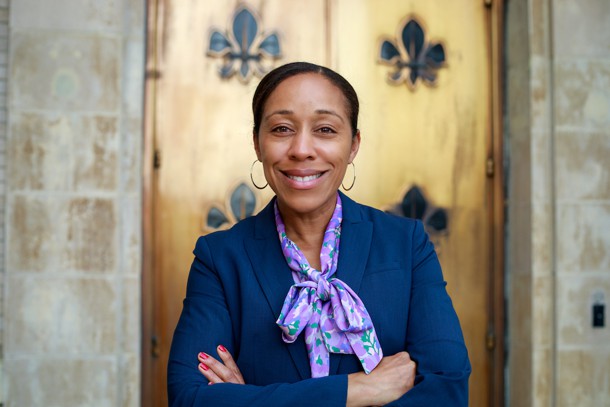
/
Alex Acaro
For Yadira Ramos-Herbert, it all began with a park.
“I was a mom and saw a park on my block that did not look like the other parks in New Rochelle,” she says. “I started to go to community meetings and asking why the park wasn’t cleaned and have new swings.”
That led to joining community committees and running for the New Rochelle City Council four years ago. Her City Council tenure was a baptism by fire: New Rochelle became the COVID-19 epicenter, and then police shot an unarmed Black man in her district.
Through it all, Ramos-Herbert maintained a humble, adaptable and collaborative leadership style, which she says she’ll continue as New Rochelle’s first female and first Afro Latino mayor.
As a member of Gen X, Ramos-Herbert remembers when she would reach into her pocket for a phone simply to call, text or email someone. She says this allows her to bridge the gap between senior citizens who prefer in-person conversations and youngsters who embrace TikTok or Zoom.
Growing up in Hollis, Queens, Ramos-Herbert remembers running into hip-hop stars at the Jamaica Colosseum Mall – and when watching video on demand meant making a VHS recording of MTV, not searching YouTube. She remembers when Google wasn’t the way to do research.
“As a nerd I remember waiting for an updated encyclopedia,” she says with a laugh. Ramos-Herbert says the experience of waiting gives Gen X a needed leadership skill. “There is something to be said for the patience we had to have,” she says.
– J.C.
Anne Reynolds
Executive Director, Alliance for Clean Energy New York

/
Cindy Schultz
When Anne Reynolds joined the Alliance for Clean Energy New York, the state did not have a 70% clean energy standard. School buses ran on gas, not electricity. And offshore wind farms, already a common sight overseas, were still largely a fantasy here.
All that has changed in the decade since Reynolds took over leadership of ACE NY. “Europe was ahead on clean energy, but the U.S. is catching up, and New York is at the forefront,” reflects Reynolds, who was previously a deputy commissioner at the state Department of Environmental Conservation.
Reynolds, who lives in the same upstate town where she grew up, got interested in environmentalism while cleaning up Boston Harbor sewage with a Tufts College class. But even as she earned a master’s degree in environmental science from Yale, she could hardly have imagined the momentum to come.
In her current role, Reynolds tripled member organizations from 30 to 120 and expanded the wind and solar organization with a practice group in electric vehicles. She also spearheaded ACE’s Offshore Wind Alliance, securing five contracts for recent projects and racking up numerous policy victories, including the creation of an offshore wind program under the state’s pioneering Clean Energy Standard.
On weekends, Reynolds can often be found hiking and kayaking in the Adirondacks alongside her three children. “I’m sure it annoys them,” she says, “that other people go to Niagara Falls and just get to look at the beauty. My kids get a lecture on clean power.”
– H.D.
Darren Rigger
Partner Dynamic, SRG

/
Ocean Morisset; Nancy Rigger
In the decades since he co-founded Dynamic SRG, a Westchester campaign fundraising firm, Darren Rigger has never had to advertise. Politicians simply “walk into events and say, ‘Who did this?’” says Rigger. “It’s all word of mouth.”
Those luminaries include Democrats such as Gov. Kathy Hochul – a client since her first congressional run – and, for years, then-Rep. Charlie Rangel, for whom Rigger orchestrated a splashy annual fundraiser featuring the likes of Aretha Franklin and Dionne Warwick.
Rigger’s first campaigns were at his Westchester grade school, where he hung up posters and “was always class president.” By his 20s, he had moved on to a new form of outreach called electronic mail – and realized that for the most part, he would rather raise the money than run for office (though he was a congressional candidate in 2005, and recently ended a decade as a council member in Peekskill).
When Rigger looks back on some of his favorite fundraisers – for then-House Majority Leader Dick Gephardt and then-U.S. Sen. Tom Harkin – he’s equally nostalgic about an era before politics became “meaner, more divisive and more personal.”
But his belief in the process remains as fervent as when he first caught the campaign bug, during a Democratic National Committee internship while studying at Georgetown University. “Elections have consequences,” Rigger says. “Government moves money in ways that can make or break a hospital system, build roads and bridges, revitalize entire communities. And I’ve seen so many people lose races because they just didn’t have enough money.”
– H.D.
Daisy Rodríguez
Executive Director of Government and Community Affairs, Wildlife Conservation Society
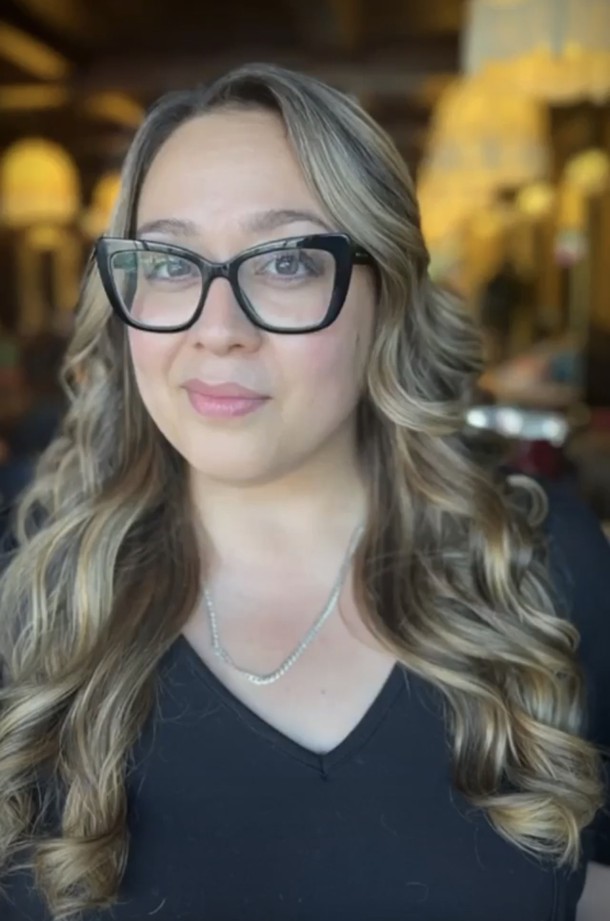
/
Marie Guardino
The child of Spanish-speaking immigrants, Daisy Rodríguez grew up just blocks from Manhattan’s American Museum of Natural History. But she never went inside until, years later, she was hired as director of government affairs – tasked with outreach to city families that, like her own, may feel intimidated by language and cultural barriers.
“What I love is taking a political strategy to enforce that there should be access and welcoming into these institutions – basic rights my folks were entitled to,” Rodríguez says.
The lifelong New Yorker has built a political career in the kinds of spaces she hardly even dreamed about as a child. She currently leads fundraising and lobbying for the Wildlife Conservation Society, the Bronx-based conservation organization responsible for five city zoos, including the Bronx Zoo.
The job brings together Rodríguez’s lifelong interests in culture as well as science – a field she, like many students of color, felt dissuaded from pursuing in school. After earning a political science degree from Manhattan College, Rodríguez took the only job she could find in the city’s post 9/11 recession: She answered phones for U.S. Sen. Charles Schumer, working her way up to community outreach director.
A mentor throughout her career, Rodríguez is especially proud of a WCS workforce development initiative that engages local youth in mentored park jobs. She knows that they, like her, won’t take opportunity for granted. “Being in these spaces that hold the world’s records of life on Earth is humbling,” Rodríguez says.
– H.D.
Rafael Roger
President, The Business Initiative Corporation of New York
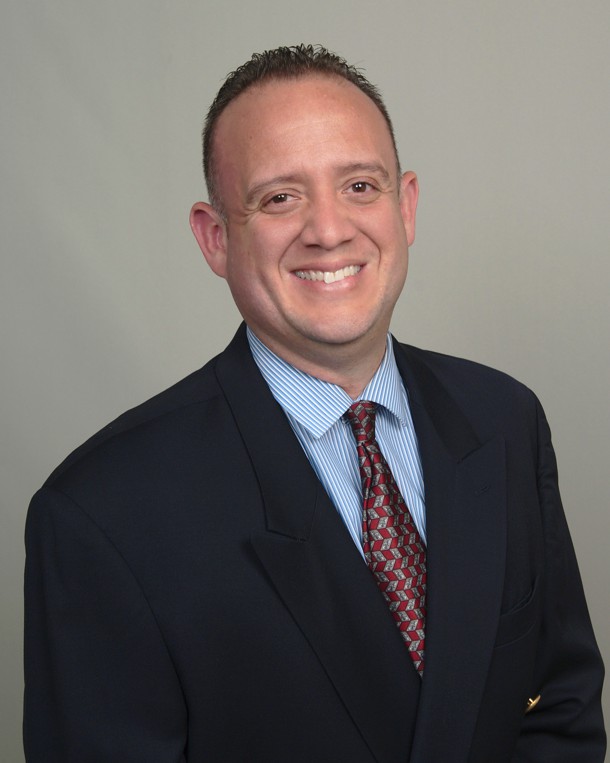
/
Sears
When Rafael Roger was growing up in the 1980s Bronx, families like his that ran small businesses had to rely on themselves – or each other. “My mom owned a bodega, my uncle owned a restaurant,” he says. “My grandparents pitched in.”
But it can be hard to get ahead that way – especially for communities of color, which, Roger says, still suffer the lingering effects of discrimination. That’s why he facilitates small business financing as president of the Business Initiative Corporation of New York, a sponsor organization of the Bronx Economic Development Corp., which he recently led as interim director.
Roger, who holds a master’s degree in business administration from Empire State University, worked as an insurance analyst in his 20s. But after he was laid off, Roger realized his passion lay in economic development – helping people like his family and neighbors. “It’s personal to me,” he says.Working with the federal Small Business Administration, Roger has doubled his organization’s portfolio over the past five years – and helped dozens of entrepreneurs bridge the ever-widening digital gap. “A lot of guys are working off their phones,” he says. “We have a huge economic divide in the borough.”
Roger hopes his Bronx initiatives could eventually be a model statewide – or even nationally. With the National Association for Latino Community Asset Builders, he recently toured economically disadvantaged communities of color from Los Angeles to San Antonio. “It was eye-opening,” he says. “We’re different, but we’re all dealing with the same challenges.”
– H.D.
Pauline Ross
Special Deputy Inspector General for Operations, State Office of the Inspector General
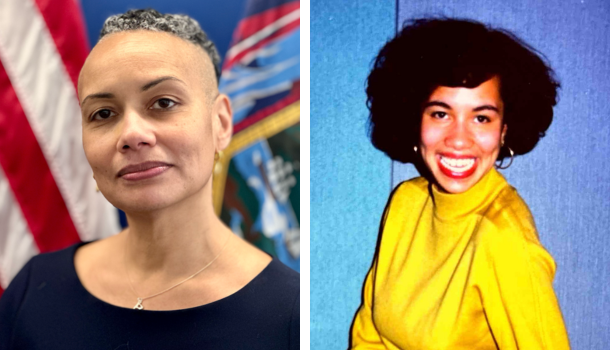
/
Jack Wild; Mary Ross
Whether it’s suspicious personal protective equipment invoicing or “getting charged $5 for one screw” on a major infrastructure project, fraud and waste don’t stand a chance on Pauline Ross’ watch.
As the state’s special deputy inspector general for operations, Ross has guided the state inspector general’s office through an era of expanded portfolio oversight. “We work collaboratively like ants, doing more investigations than you would think,” Ross says.
Since she joined the office seven years ago, she has been “keeping things going when it feels like the world is blowing up,” whether it’s the COVID-19 remote work transition or when the governor or the state attorney general resigns.
The daughter of a Jamaican immigrant, Ross had grown up protesting apartheid in South Africa and became a lawyer “to fight the system,” righting the dysfunction she saw during her 1980s Newark childhood.
Ross’ leadership is all the more impressive because for most of her career, she quietly battled alcoholism. She started drinking during a “rudderless” phase after law school. She drank through jobs with then-state Sen. David Paterson, as a civil rights lawyer in the attorney general’s office and in the Gov. Andrew Cuomo administration. Valued for her consistency and steady presence, Ross reluctantly took a pause to get sober six years ago.
“I learned the world was not going to fall apart,” Ross says. “That you’re actually taking a step back to take two steps forward. And that there’s always a remake.”
– H.D.
Stephen Sigmund
Chief of Public Outreach, Gateway Development Commission
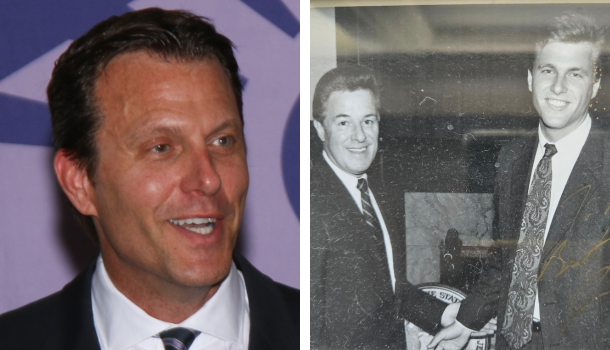
/
Submitted
After 9/11, Stephen Sigmund was unfazed by what might have seemed a daunting assignment: leading the Port Authority of New York and New Jersey’s public outreach for its $20 billion World Trade Center site redevelopment.
But Sigmund – then the Port Authority’s chief of public and government affairs – came from a family with outsized ambition. His grandparents, Hale and Lindy Boggs, successively represented New Orleans in Congress for 50 years. His mother was a longtime mayor of Princeton, Sigmund’s hometown, and his aunt was the journalist Cokie Roberts.
“Politics was literally in my blood,” Sigmund says (his father didn’t hold office, but taught political theory at Princeton). But typically for Gen X, “it’s not like my parents showed me anything. We had to learn by osmosis.”
Sigmund found his own niche in communications, including for then-New Jersey Gov. Jon Corzine and then-New York City Council Speaker Gifford Miller. “I liked the immediacy of communications,” Sigmund says. “You had a ‘report card’ in the newspaper every day.”
Infrastructure has been a recent focus: Sigmund was a founding executive director of the Global Gateway Alliance, the coalition that spearheaded multibillion-dollar modernization efforts for New York City’s airports. Now he’s working on a similar project at the Gateway Development Commission – the $16 billion effort to replace New York’s aging rail tunnels.
Public service may be Sigmund’s inheritance, but every day he’s more convinced of its necessity. “As a nation of 330 million people,” he says, democracy “is the thing that really connects us.”
– H.D.
Thomas Stanton
Principal, KPMG
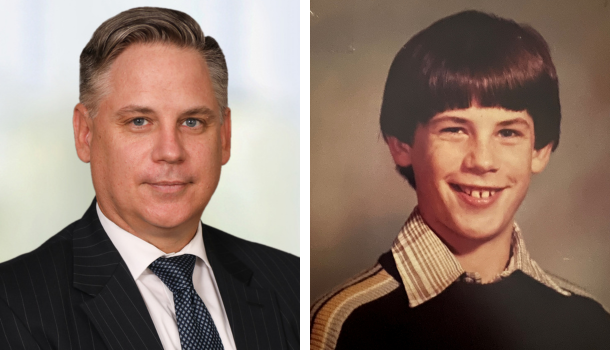
/
KPMG; Stanton
Thomas Stanton remembers a world before Google and cell phones, but artificial intelligence doesn’t faze him. Quite the opposite: “It’s mind-blowing how fast you can do things,” says Stanton, a principal in KPMG’s forensics practice. “The use of AI to expedite investigations has been tremendous.”
Stanton has been with the global accounting firm for 25 years – long enough to remember “100 people in a room, entering information into an Excel spreadsheet,” he says. Now, with a few taps of his finger, Stanton can move that data into a searchable database. And he can do it in mere seconds.
What hasn’t changed is Stanton’s passion for audits and forensic accounting, which involves recovering data after disasters and keeping an eye out for fraud, waste or abuse. After studying accounting in college, the Sarasota Springs native moved to New York City. An early assignment had Stanton assisting on post-9/11 investigations, as the debris removal process turned up critical information.
His most memorable assignments are a record of the past quarter-century’s disasters: Hurricane Katrina, the BP Gulf oil spill and Superstorm Sandy. More recently, Stanton has scrutinized the state’s migrant asylum-seeker program, looking for anomalies in the bills racked up with hundreds of providers of food, lodging and other services statewide.
“We’re saving taxpayer dollars. It’s all of our money,” he says. “But what I really love is putting puzzles together to identify the anomalies. Every investigation is different, and you learn something new every time.”
– H.D.
Clovis Thorn
Commercial Banker, Amalgamated Bank
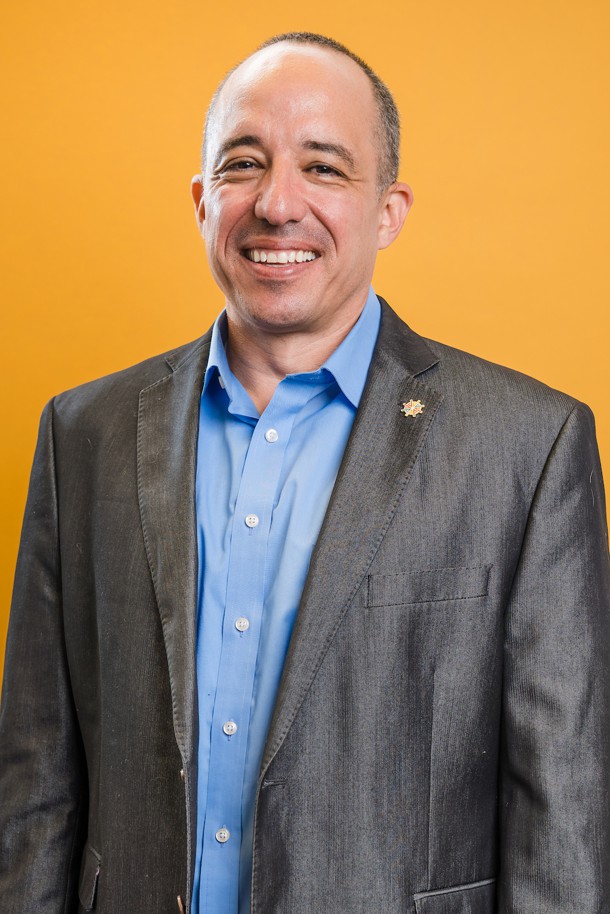
/
Grand St. Settlement
Whether championing humane drug policy, coordinating social services or helping nonprofits prosper, Clovis Thorn has always been drawn to advocacy.
Thorn was just 10 when his father died of multiple sclerosis, leaving his 33-year-old mother a widow. “The role my extended family played was so important,” he says. Thorn later fostered that sense of communal support at Grand St. Settlement, the social services outfit where he worked until this fall: “We built communities, giving people going through a hard time those opportunities to strengthen and thrive,” he says.
Now Thorn aims to do that for nonprofits through Amalgamated Bank, where he coordinates financial services for many of the city’s most essential organizations. He proved his nonprofit finance bona fides at Grand St. Settlement where, as development and communications director, he led a $17 million capital campaign and helped expand services from 10,000 to 17,000 New Yorkers.
Thorn had previously spent 15 years rallying support for Drug Policy Alliance, a $15 million organization dedicated to reforming drug laws locally and globally. As managing director of development, he created membership and donor programs that help kick-start the movement toward overdose prevention sites. “When I started, it was a radioactive issue,” Thorn says. “By the time I left, we’d established ourselves as policy and thought leaders.”
The issues may be different, but Thorn’s guiding principles remain steadfast. “I truly believe the vast majority of people are doing the best they can,” he says. “Sometimes they might need a little help to get there.”
– H.D.
Darlene Williams
President and CEO, Union Settlement
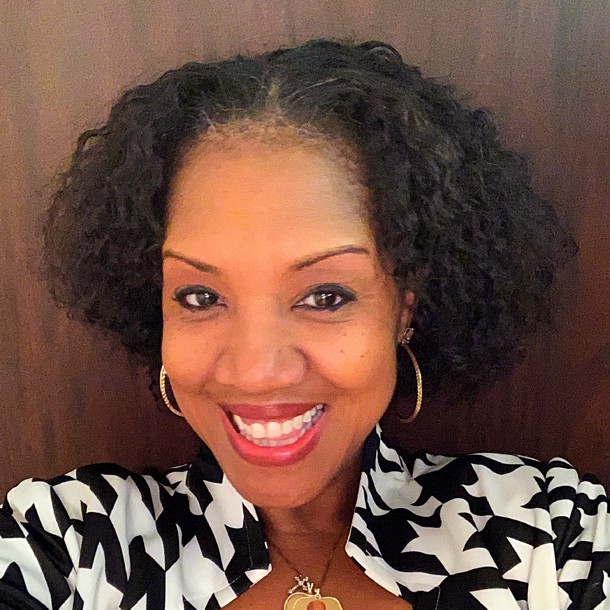
/
Submitted
A teacher once told Darlene Williams she would never amount to anything. “Obviously that teacher was wrong,” says Williams, who is now the head of Union Settlement, a 128-year-old East Harlem institution that is the area’s largest social services outfit.
The native New Yorker joined the nonprofit organization last June, where she oversees a staff of 350 and services for 10,000 New Yorkers annually. She brings not only a social consciousness forged in the church where her father was a pastor, but also a record of championing some of New York City’s most effective nonprofits.
When housing insecurity increased during the COVID-19 pandemic, Williams opened five new buildings as founding chief program officer at Win, an organization that provides emergency shelter, supportive housing and social services for homeless women and children. “I had to think off the cuff,” she says of that period. “We were essential workers. We couldn’t just work from home, while people needed homes.”
For a decade, Williams has also run her own consultancy, helping local organizations with strategic planning, fundraising and diversity initiatives. She also holds doctorates in religious education and public policy and, following in her father’s footsteps, is a reverend with Evangel Temple Ministries.
“Service is something that is ingrained in every aspect of what I do,” Williams says. “Particularly in areas with racial inequities, I want to help people and organizations thrive. If I’m in a position to elevate people – that’s my passion.”
– H.D.

